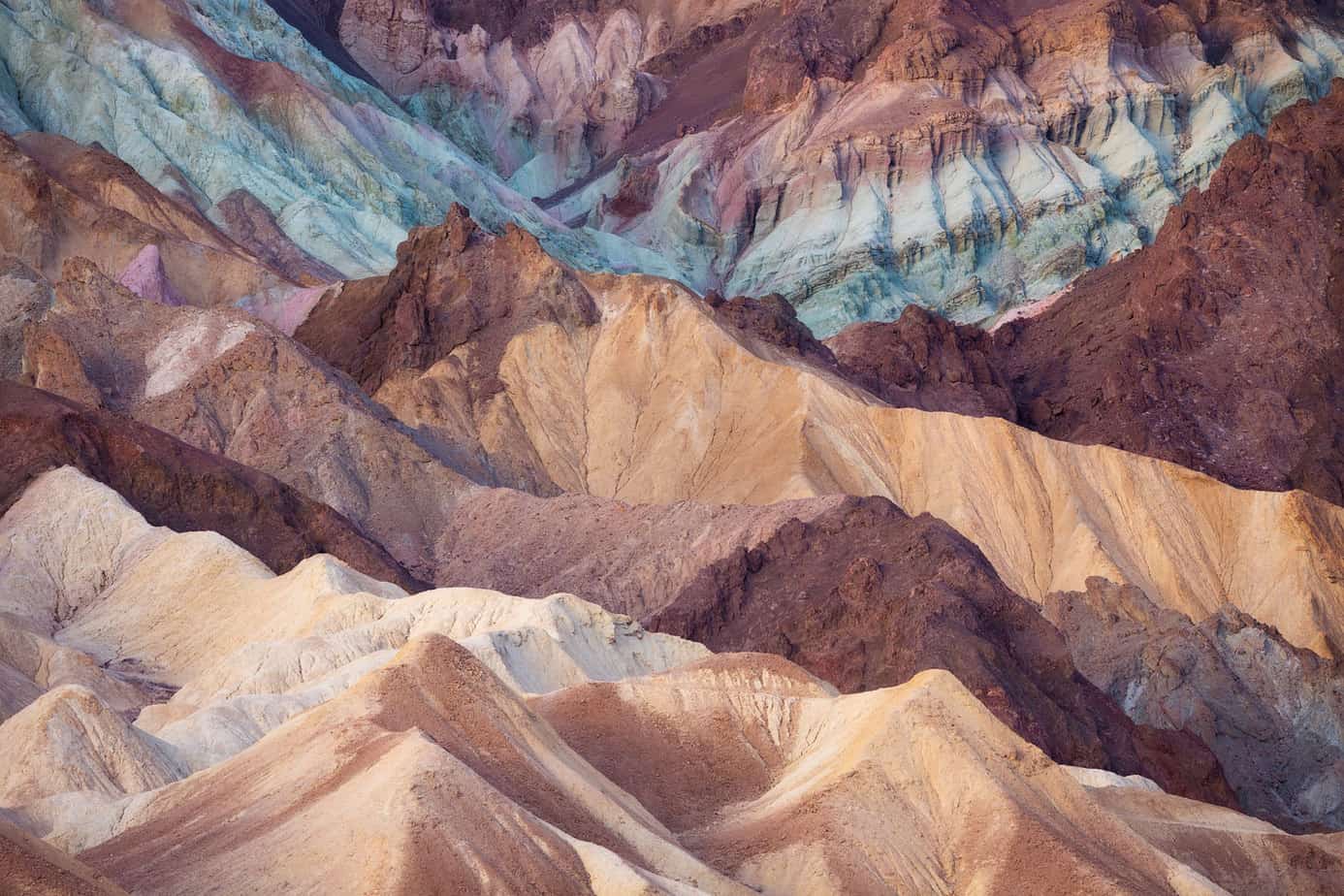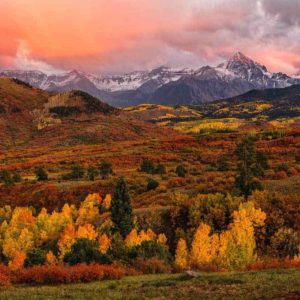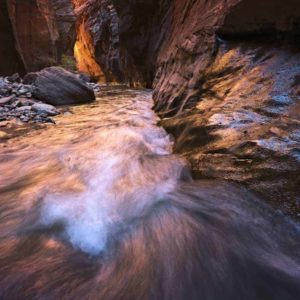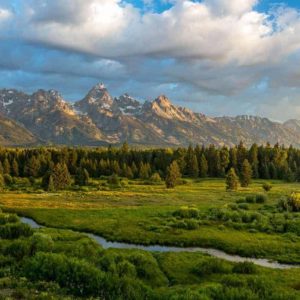No products in the cart.
Death Valley Small Scenes & Personal Expression Workshop February 2020 with Sarah Marino
With David Kingham, Jennifer Renwick, and Sarah Marino
February 5-9, 2020
Limited to 10 participants
• Based out of Furnace Creek, CA
• Fly into Las Vegas (See ‘How to Get There’ section below)
Out of stock
Sign up for the waiting list:
Category: All Workshops
Tags: 2020, death valley, workshop
A jewel of the Mojave Desert, Death Valley National Park offers up fascinating geology, surreal and otherworldly landscapes, and surprising biodiversity within an accessible, varied, and quite extensive landscape. The park’s topography, with narrow canyons, towering mountain ranges, surreal playas, and vast sand dunes, offers hours of changing light each day, which will provide our group with extended opportunities for photography.
This retreat-style workshop has been designed to allow time for exploring this dynamic landscape, engaging in the creative process, experimenting with new ideas and techniques, and creating photographs of nature’s small scenes. We will seek out intimate landscapes, telephoto landscapes, abstract renditions of natural subjects, portraits of plants and trees, and macro subjects. Your three instructors, David Kingham, Jennifer Renwick, and Sarah Marino, are partnering on this unique offering to guide you in creating a personally meaningful, creative portfolio of Death Valley’s inspiring landscapes. David, Jennifer, and Sarah all bring extensive experience exploring Death Valley and a deep love for the place that sets them apart from other photographers offering workshops in this area.
Although grand landscapes will not be our focus, we will take advantage of the soft light at the edges of the day along with changing (and harsher) light throughout the rest of the day to help expand your creative abilities and the group’s photographic opportunities. During our time in the field, we will share lessons on learning how to see smaller scenes in nature, composition, working with a broad range of lighting conditions, and overcoming technical challenges.
In addition to finding and photographing the best small scenes that Death Valley National Park has to offer, personal expression, exploring creativity, and experimentation will be top learning priorities for this workshop. The workshop will include extensive time in the field (two to three extended field sessions on each full day), guided lessons to extend your learning, time for personal exploration, and formal instruction on photo processing. We will also share many meals to allow time for discussion about all topics related to photography, travel, and the places we are visiting.
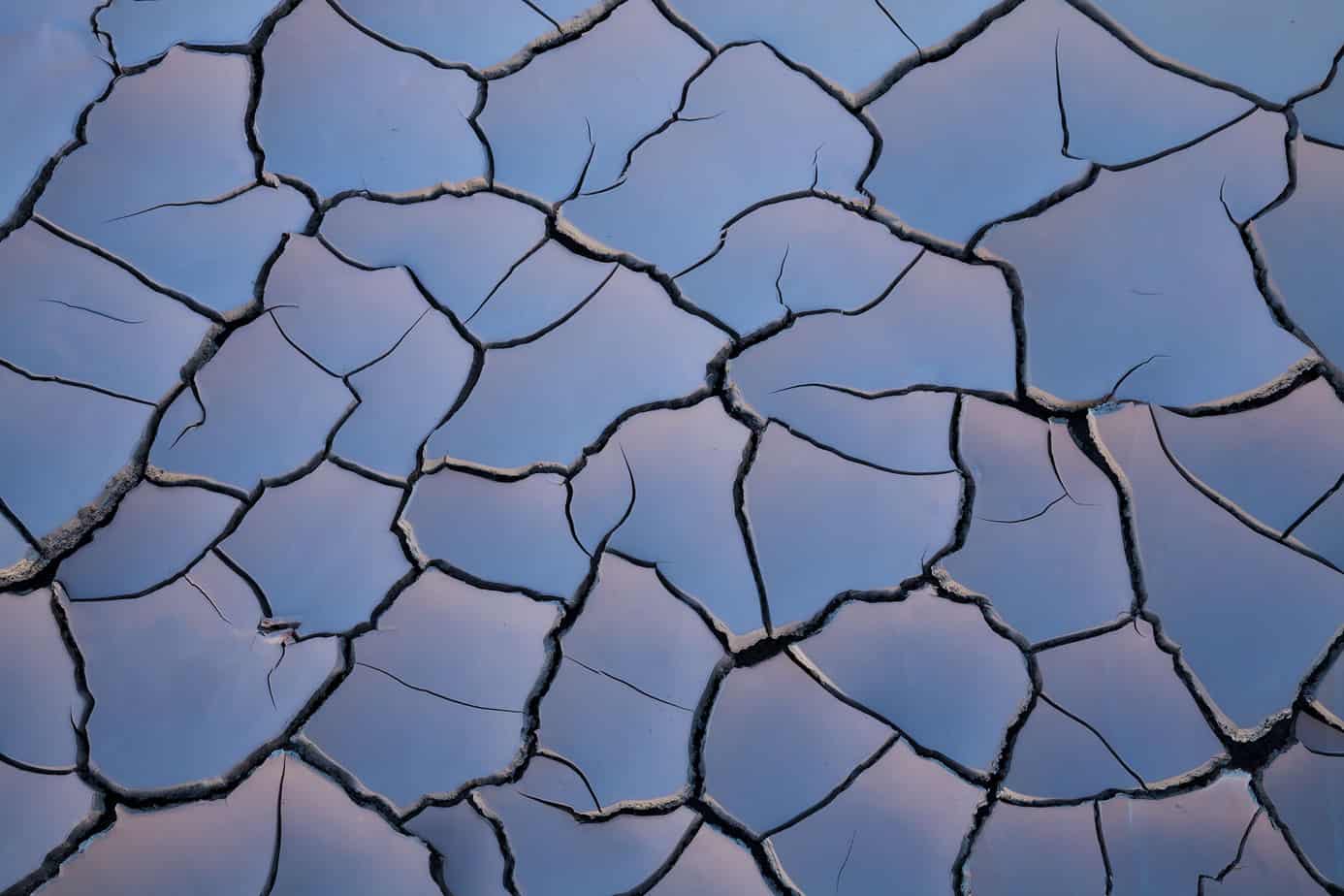
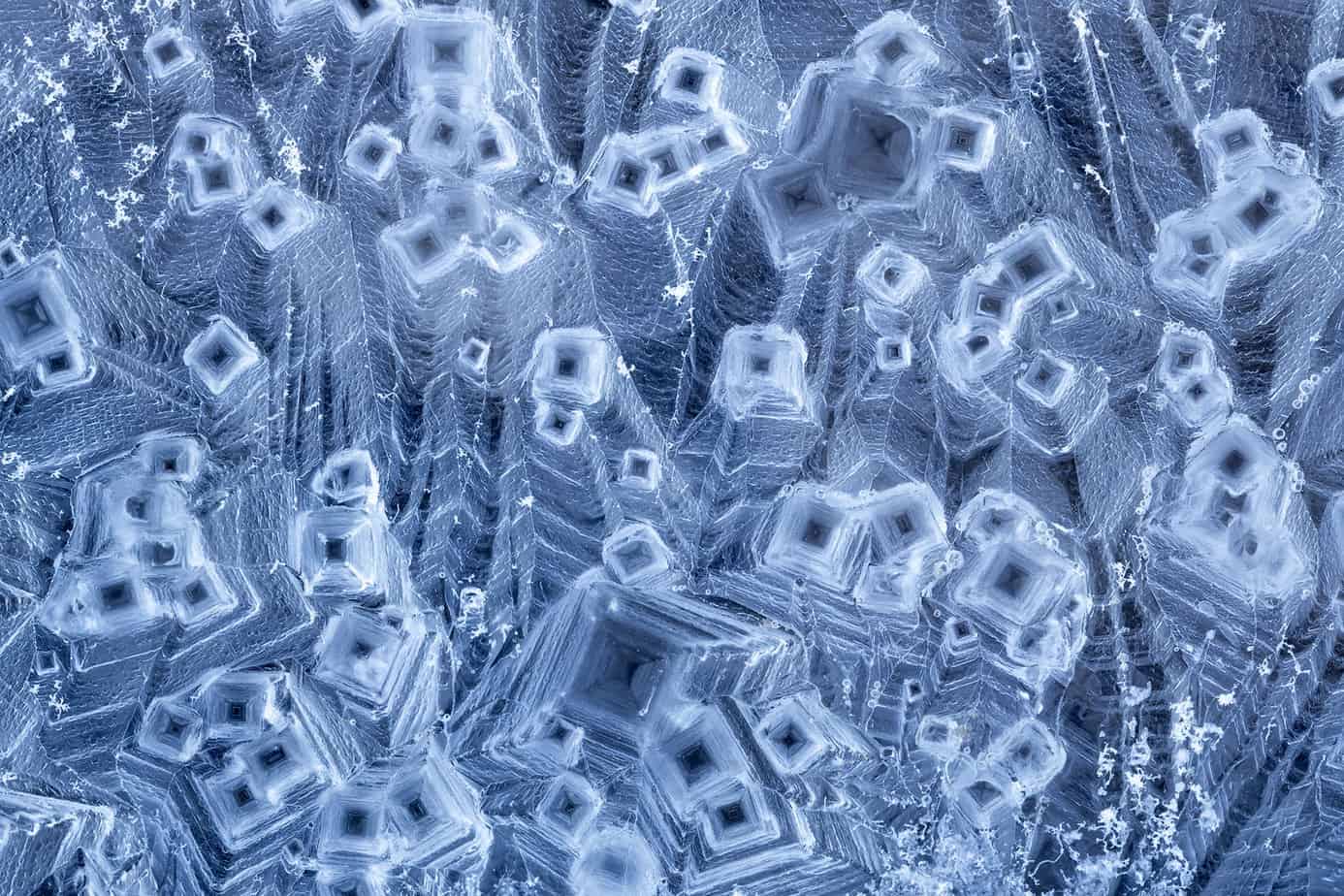
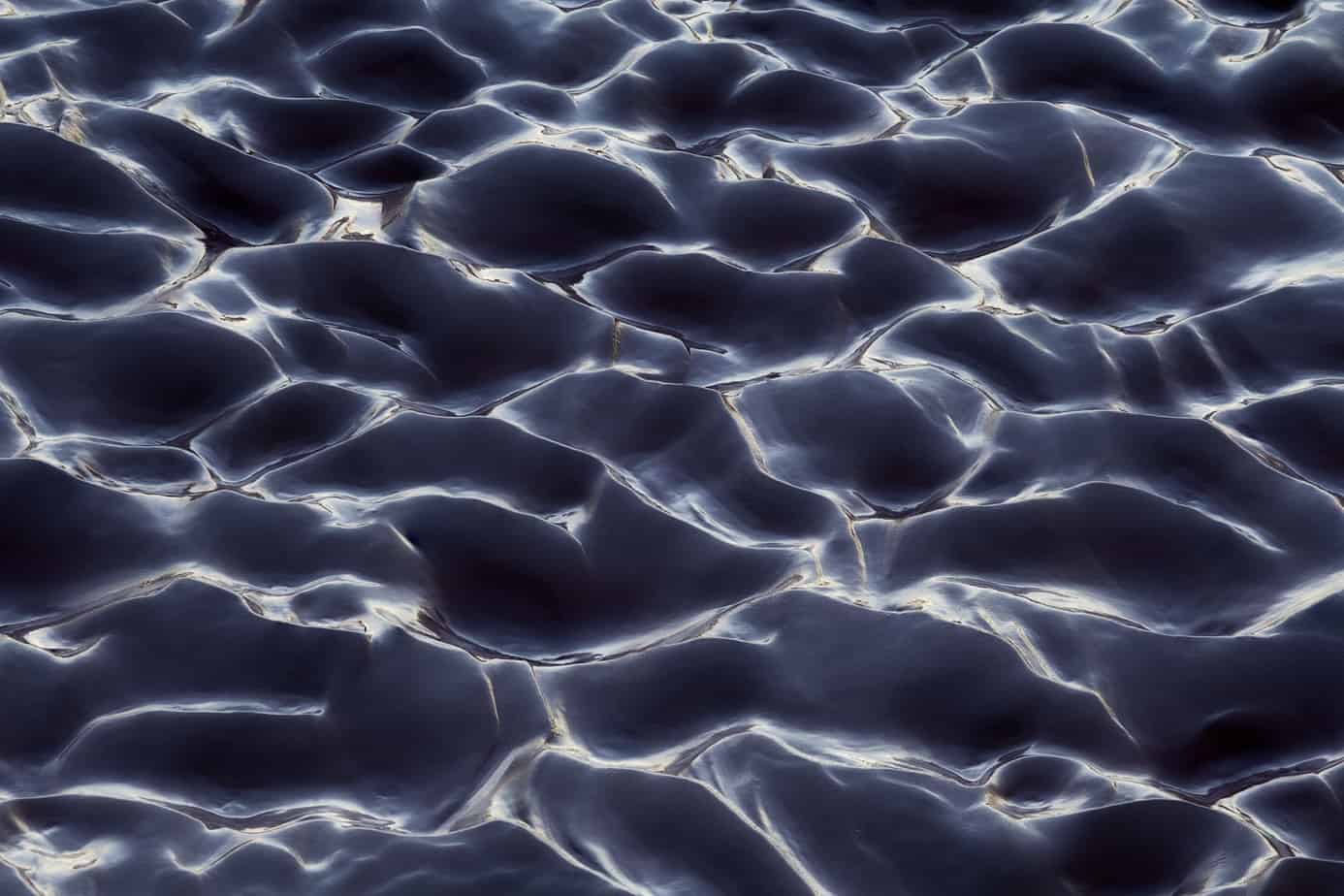
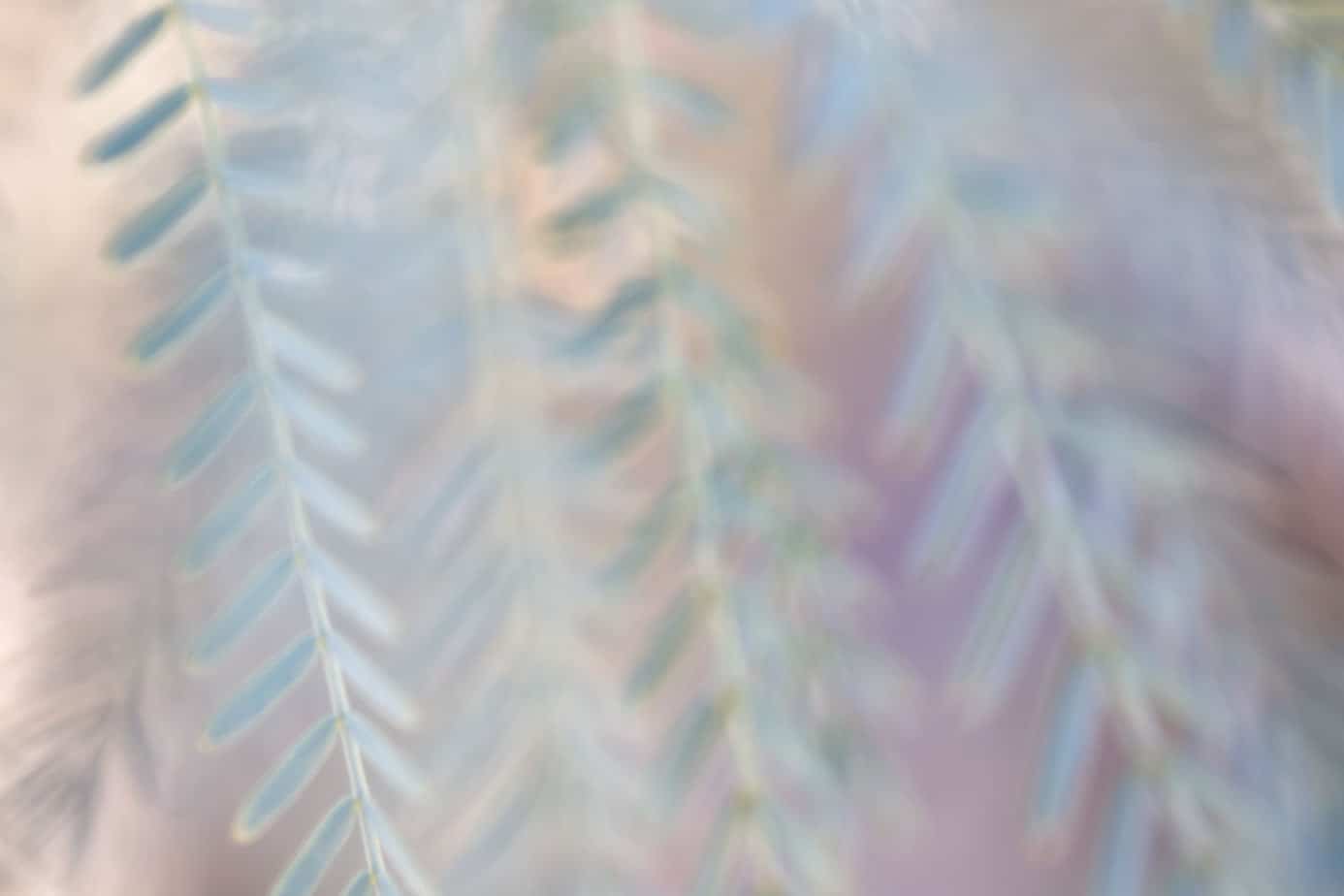
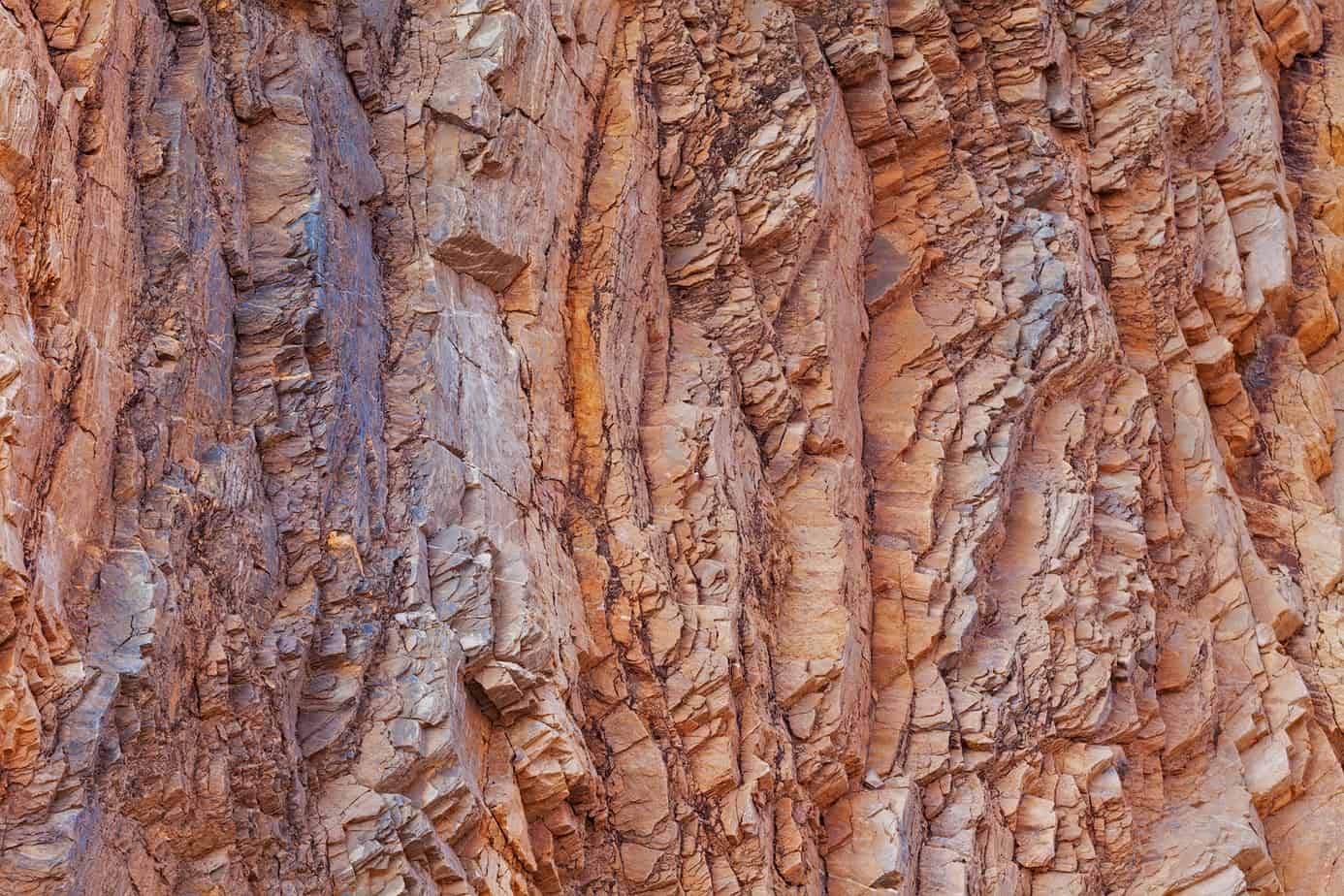
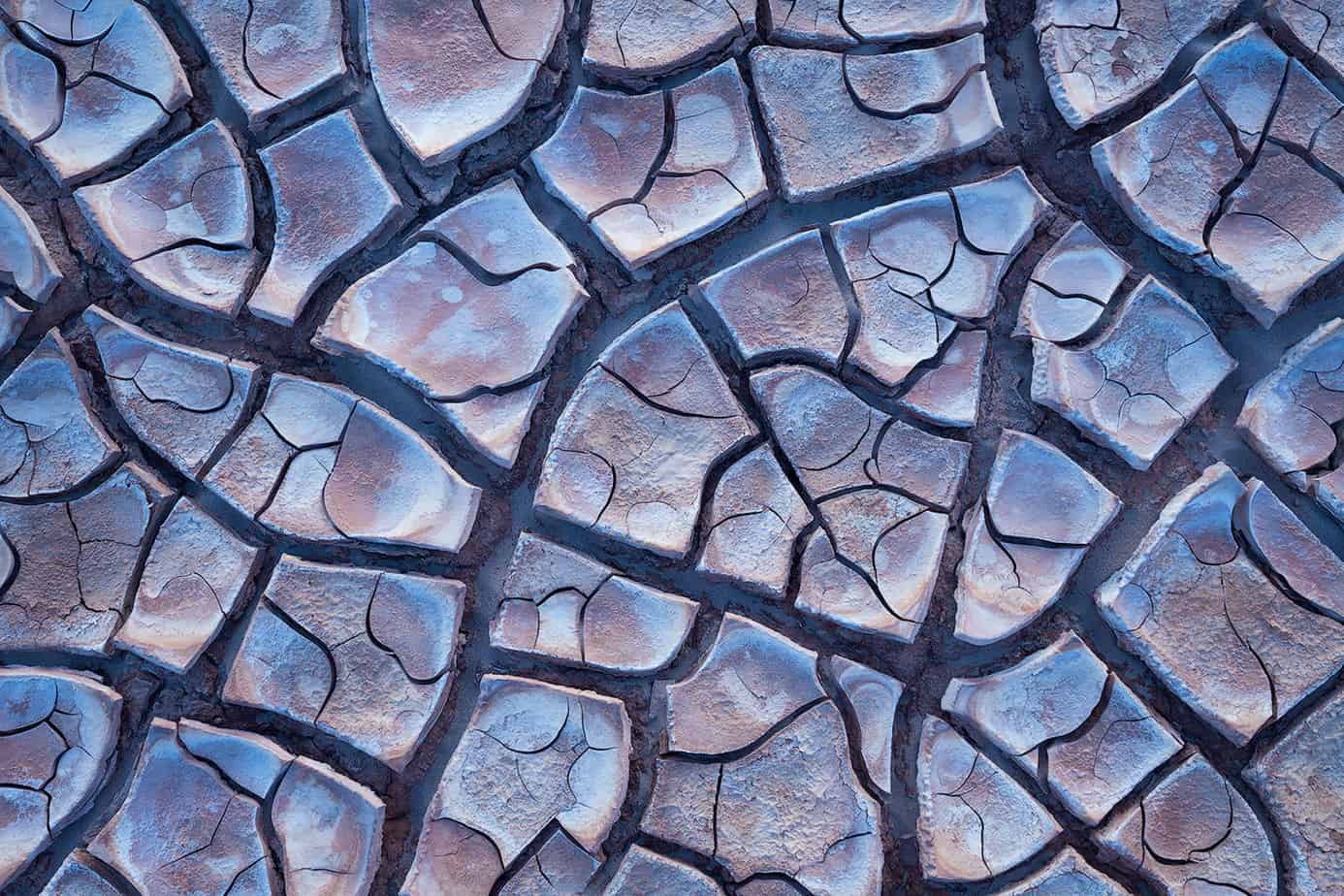
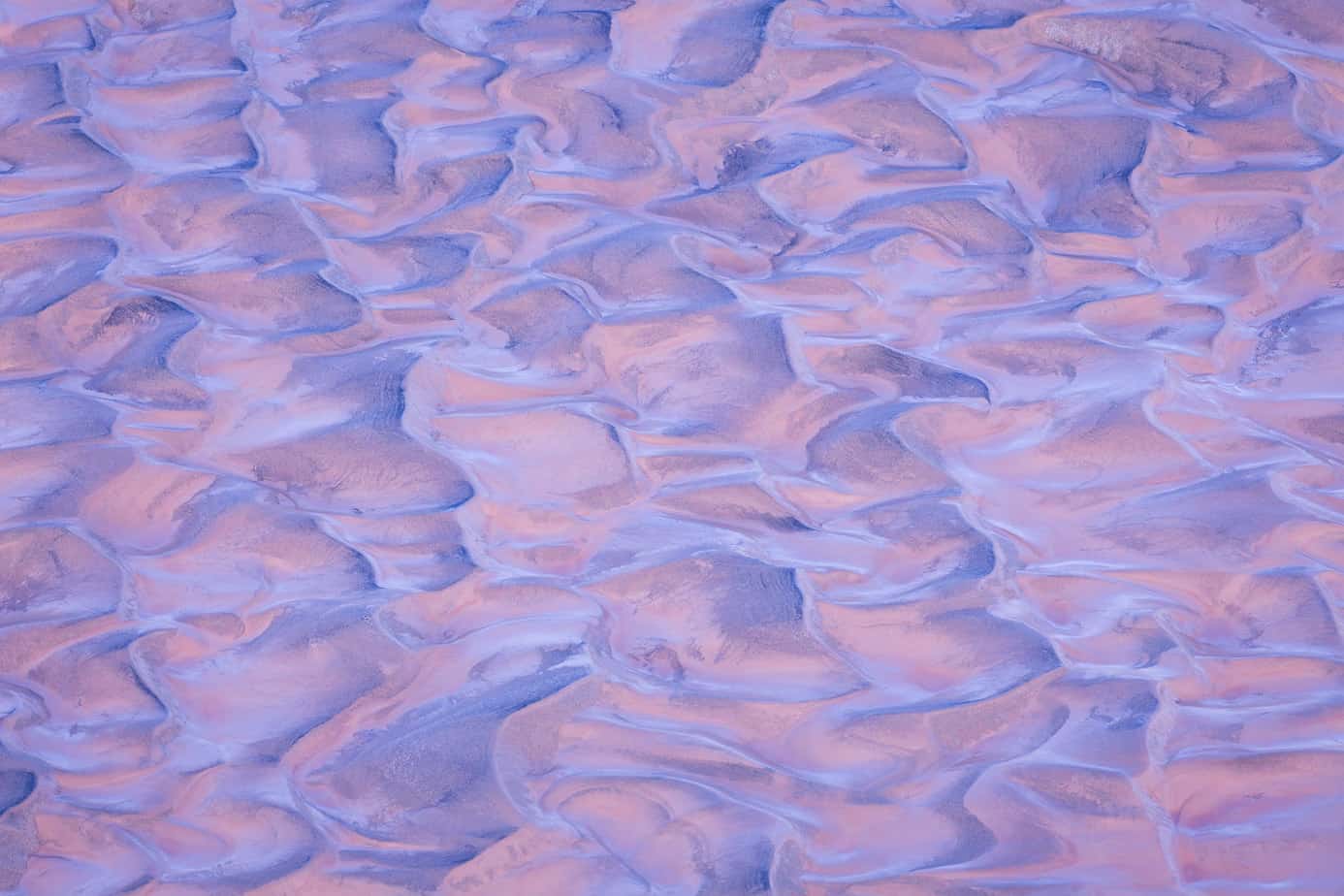
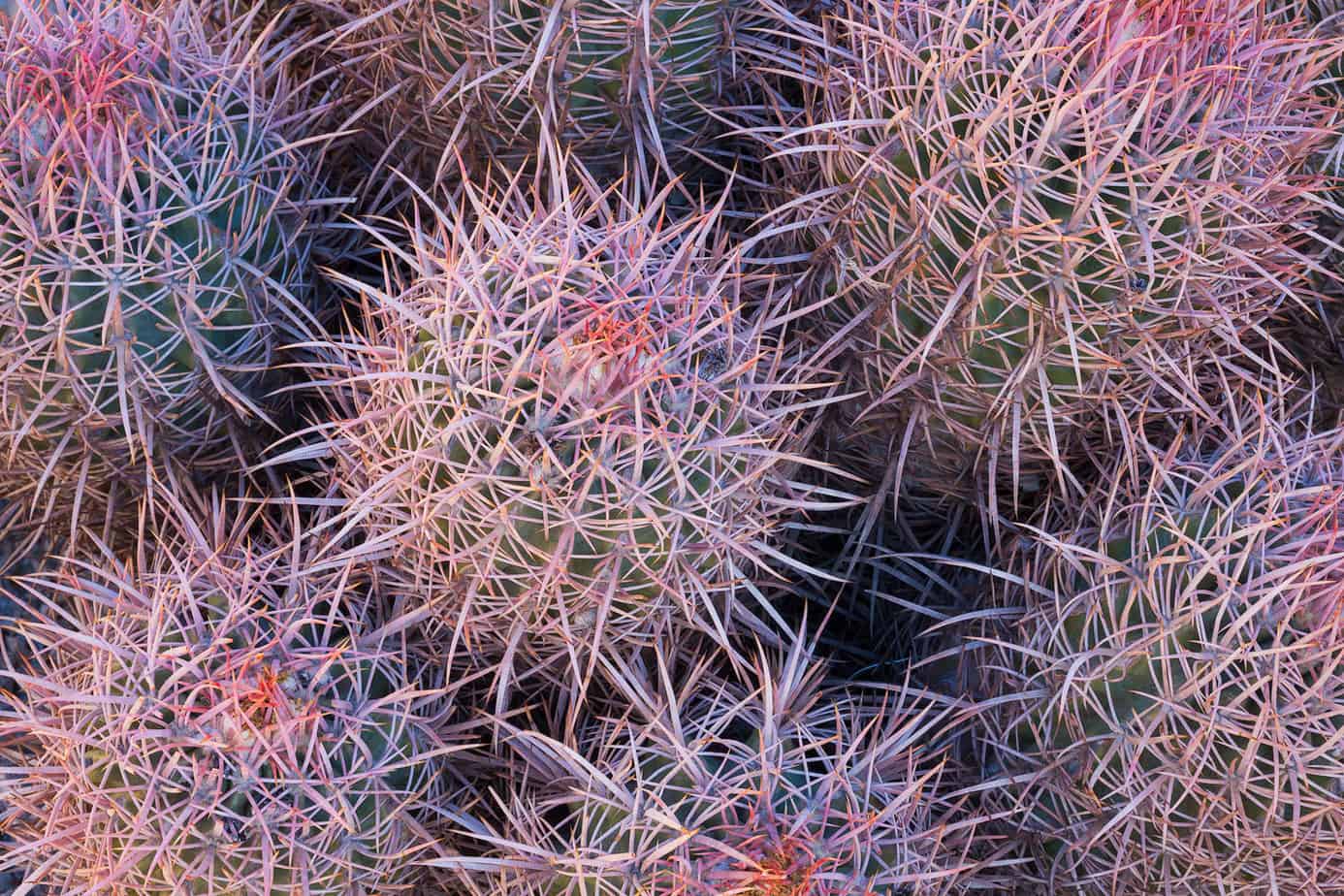
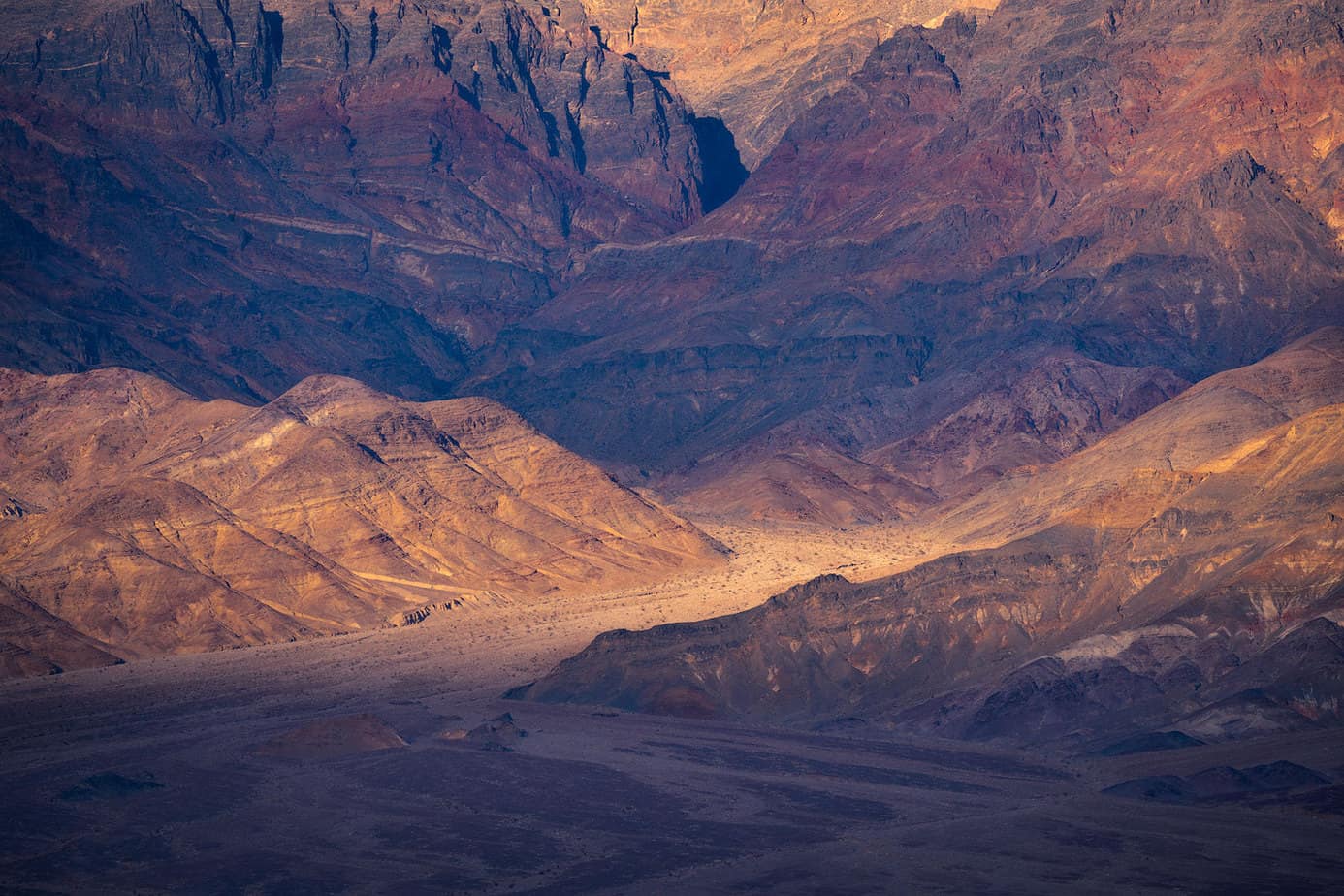
What you Will Learn
In the Field
- How to expand your visual exploration skills and improve your ability to see and photograph nature’s smaller scenes
- Approaches for enhancing your creativity and learning through experimentation
- How to read a scene to create compelling compositions using shapes, lines, visual mass, texture, and more
- How to utilize weather information to make location decisions
- How to photograph a wide variety of scenes under all different kinds of lighting conditions
- How to use apps to scout out your own locations and plan future photography outings
- How to use a broad range of lenses to photograph smaller scenes within nature
- How to use filters for creative effect, including polarizers and neutral density filters
- Depth of field and hyperfocal distance to help you create sharp photos
- Overcoming technical challenges specific to photographing small scenes, including achieving maximum sharpness using focus stacking
- Identifying the best light and how to expose correctly
Post Processing for Beginners
- Making dull RAW files pop in Lightroom using the tools in the Develop module
- How to keep your files organized
- Use of local adjustments for dodging & burning, and many more creative opportunities
- Using white balance to create mood in your images
- How to properly sharpen and reduce noise for maximum image quality
- Exposure blending using HDR for natural looking results
Post Processing for Advanced Users
- How to use processing techniques to develop a cohesive portfolio of work that aligns with your photographic style and creative vision
- Exposure blending using luminosity masks to create balanced, natural-looking images
- Focus stacking using Photoshop, Zerene Stacker, and Helicon Focus for maximum depth of field
- Creative burning and dodging techniques to bring focus to your subject
- Emphasizing drama and mood through processing choices (advanced color adjustments, light bleed, Orton effect, and other techniques)
- Using midtone contrast adjustments to make images pop off the screen
- Black and white processing using Photoshop
- Sharpening for web and print
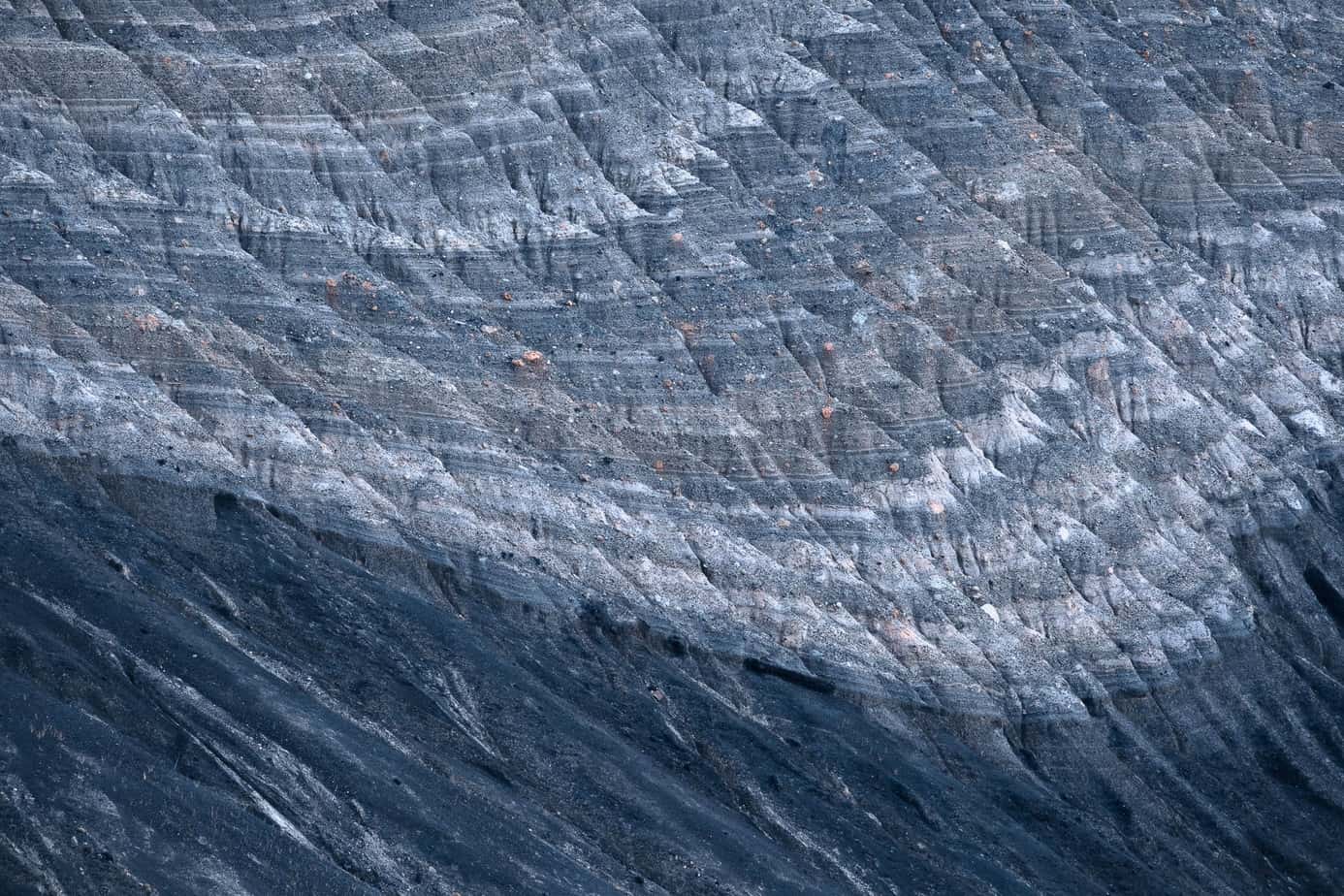
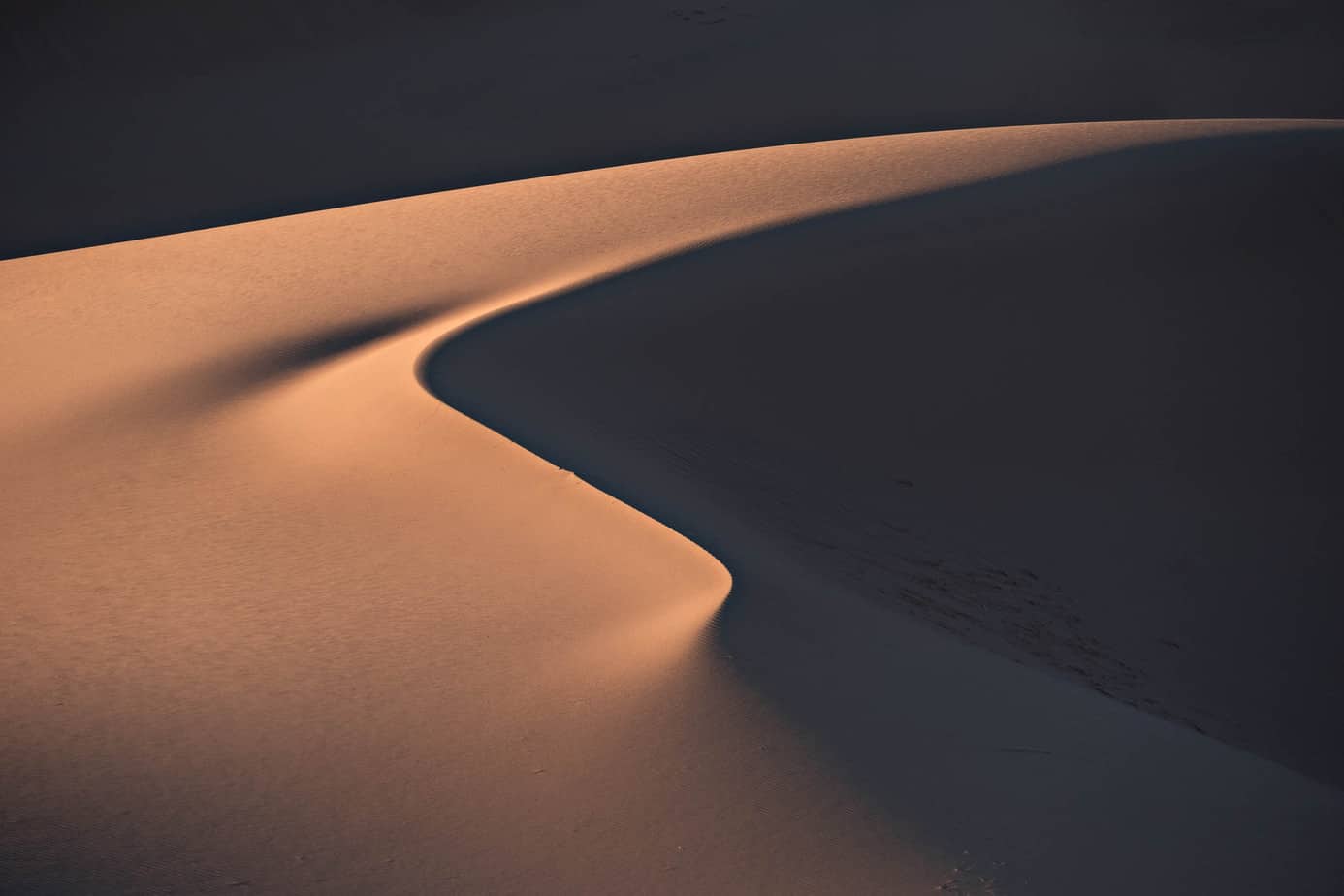
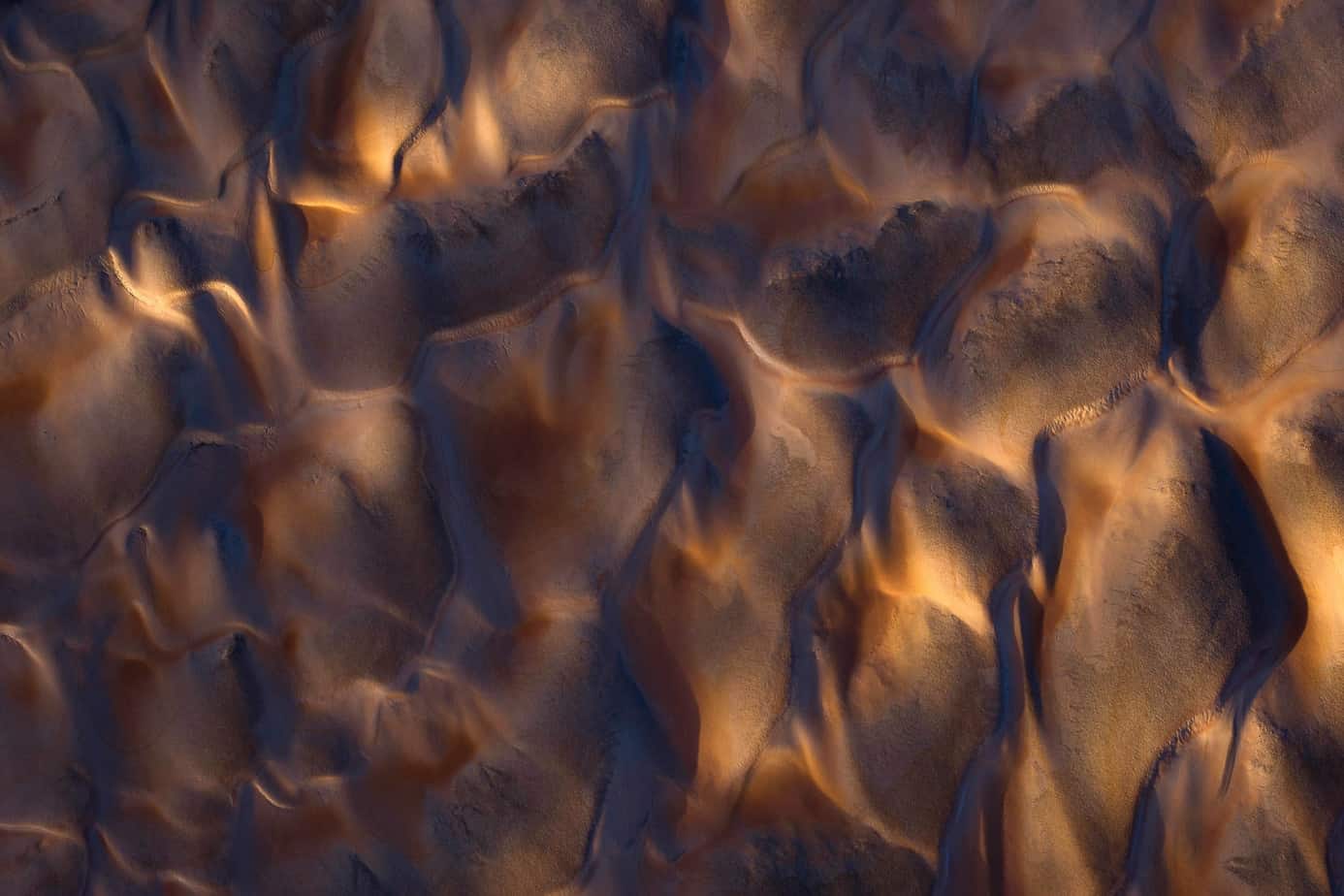
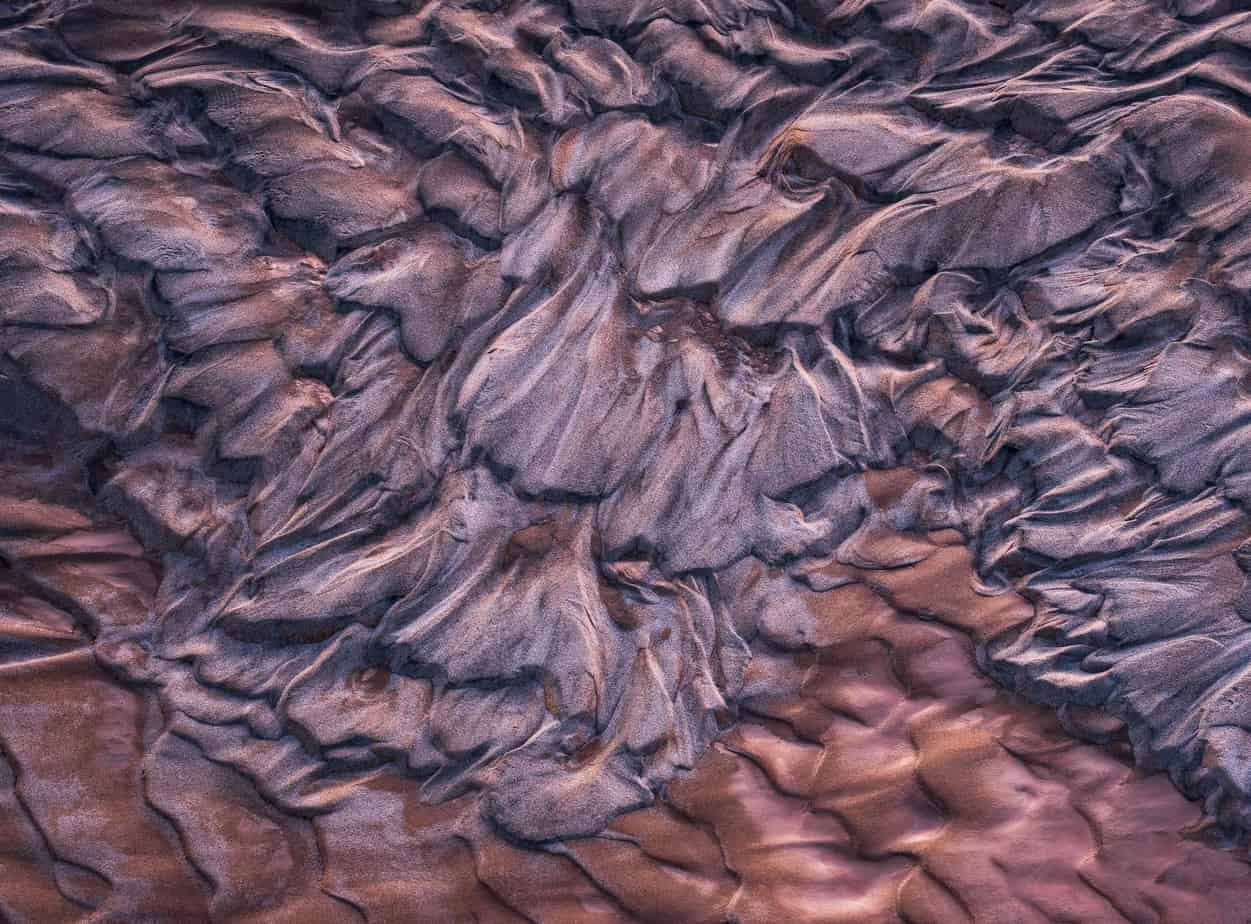
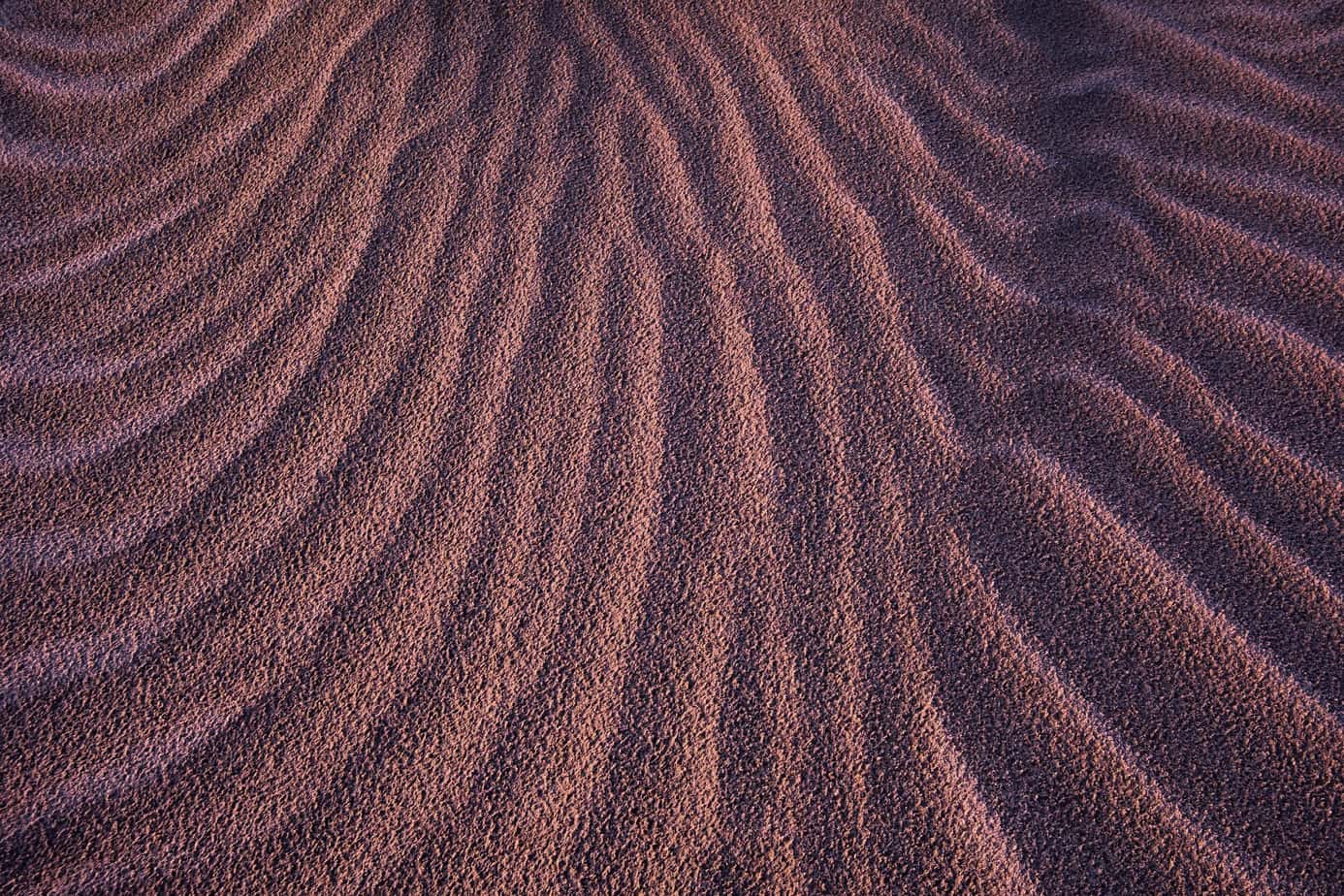
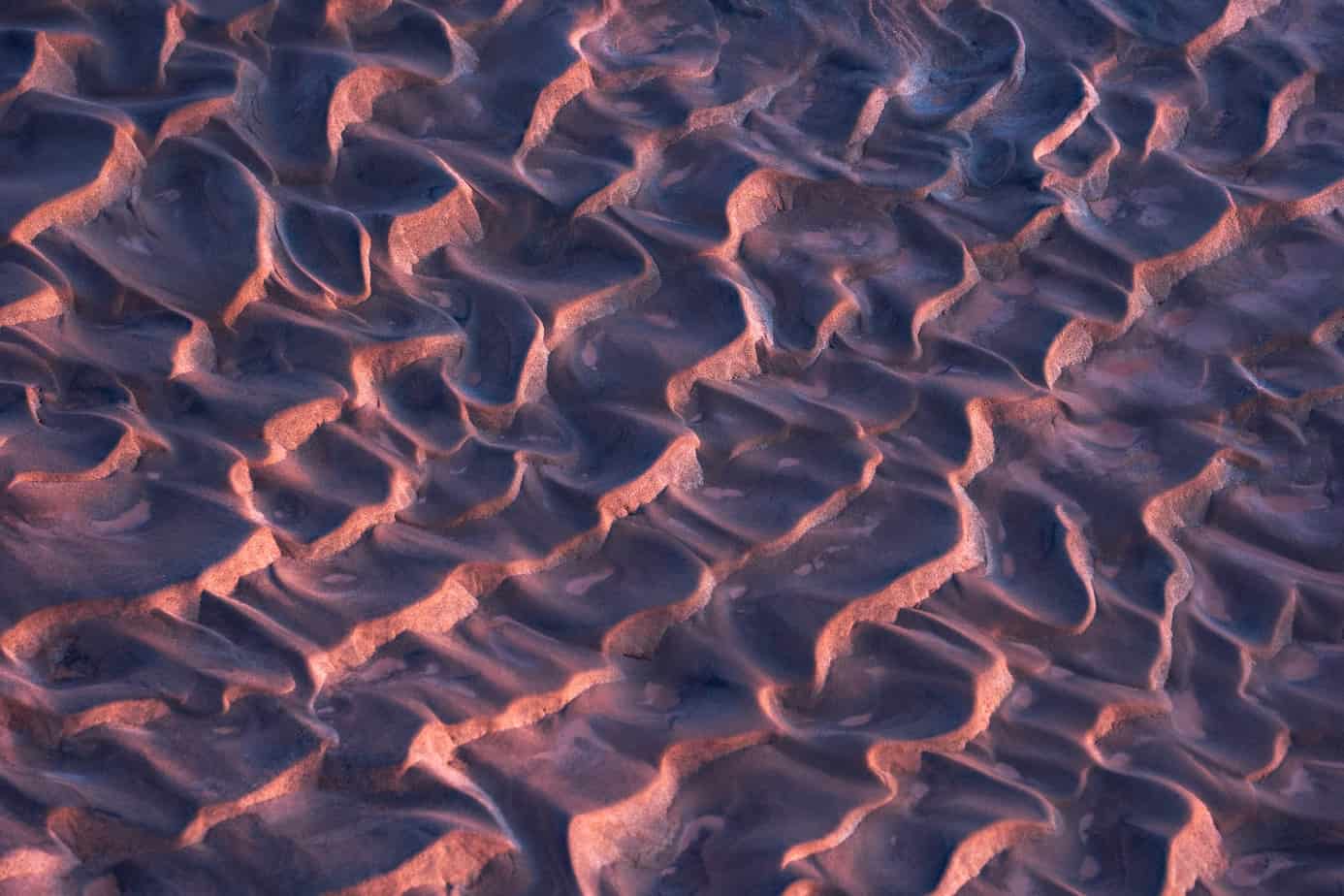
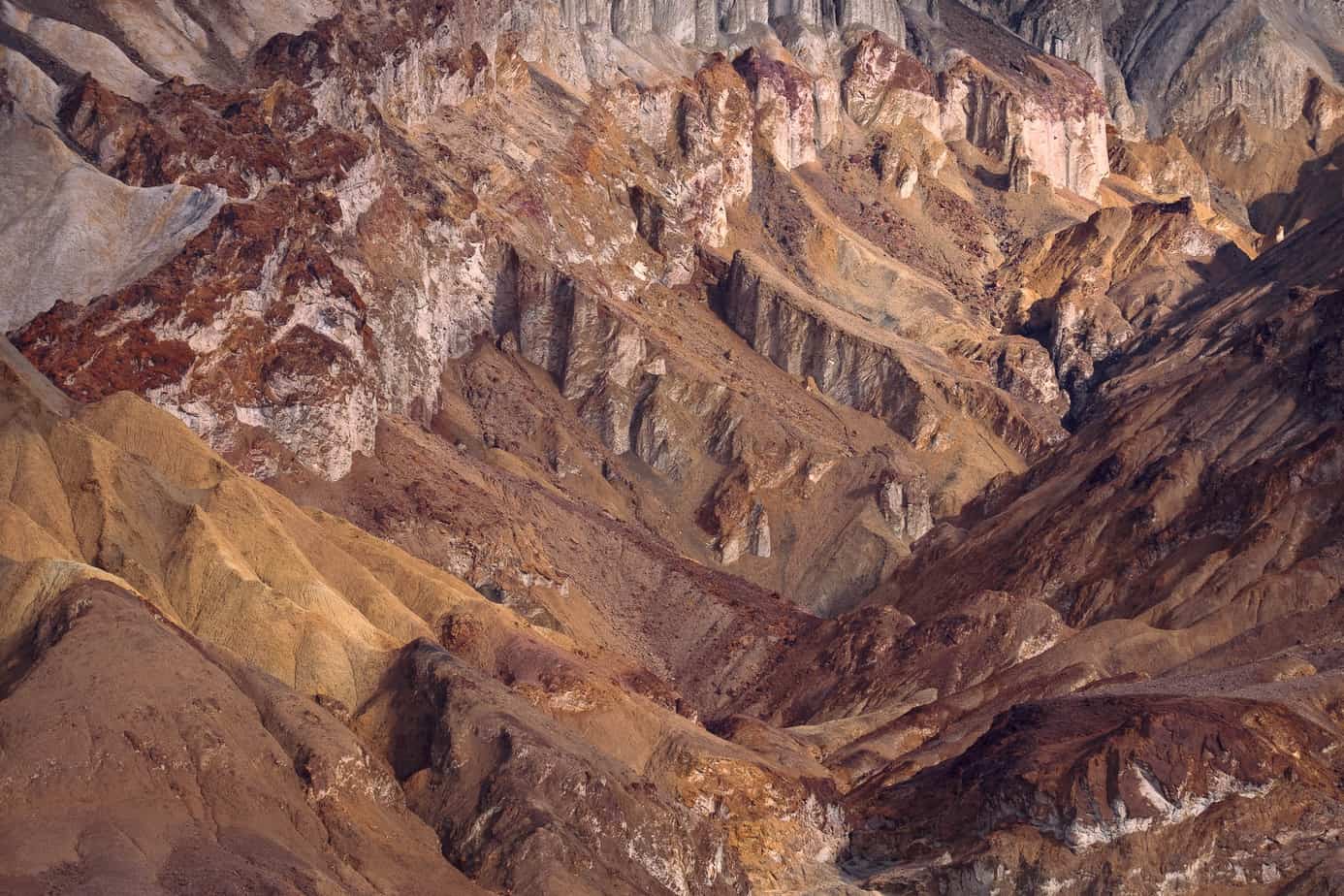
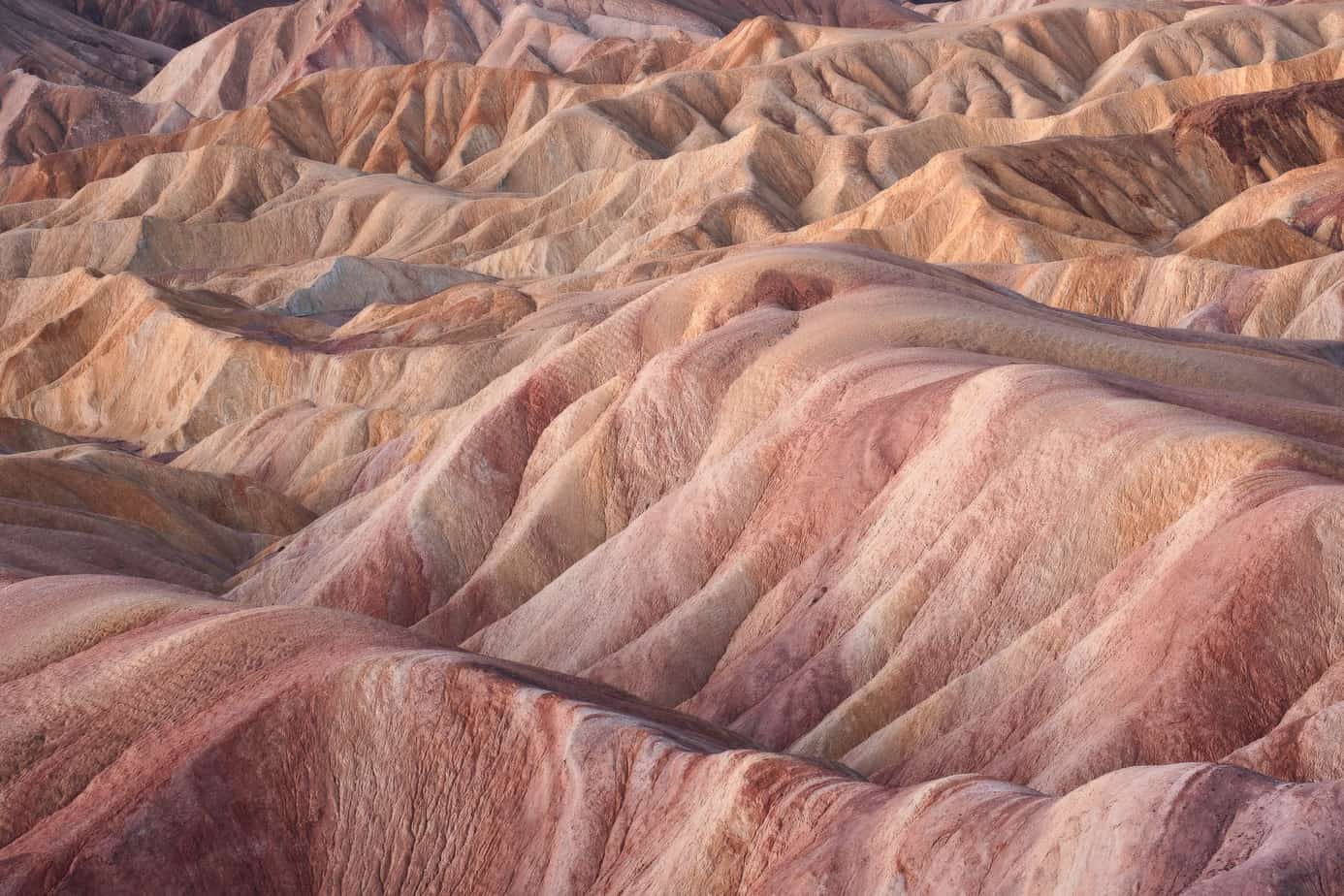
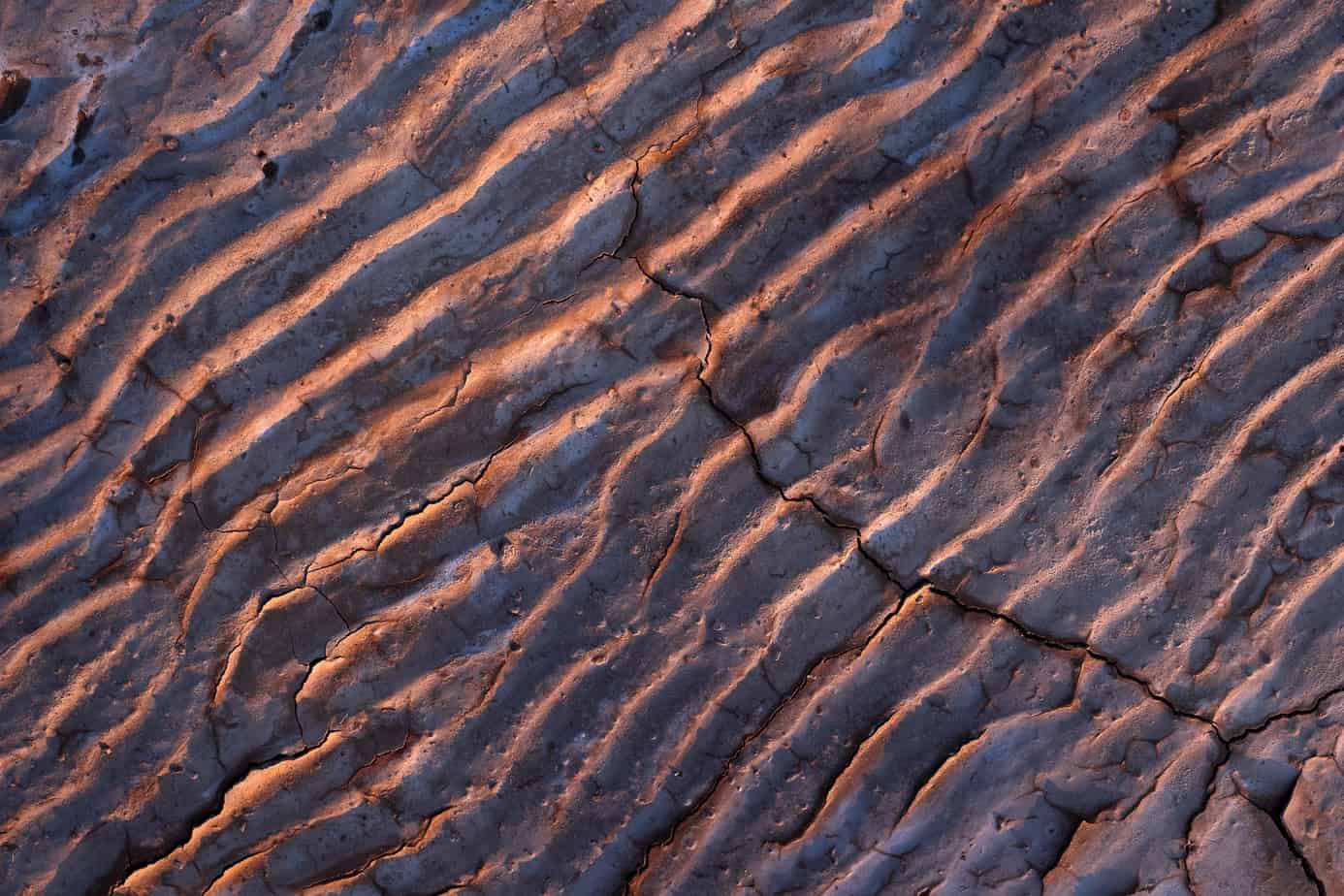
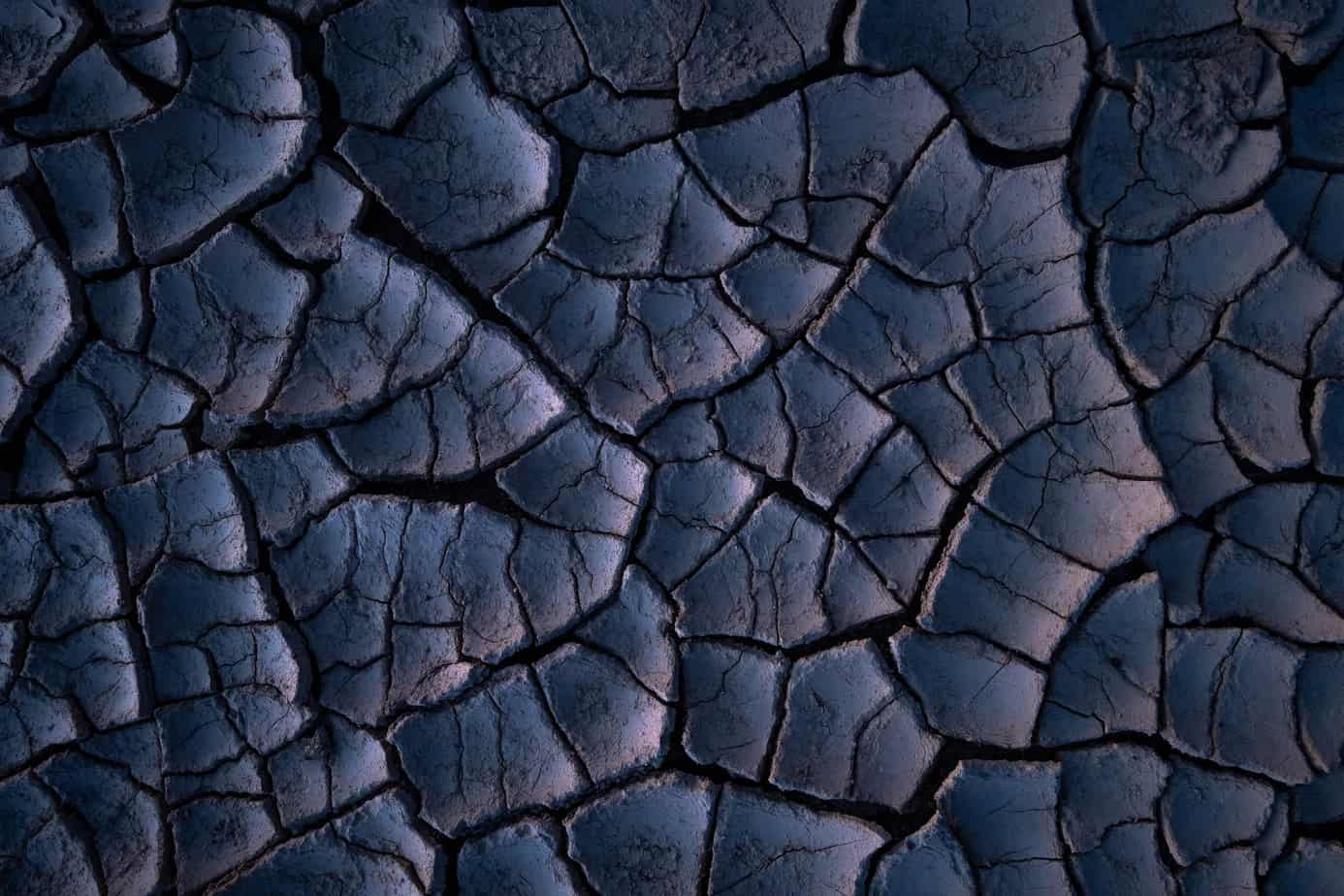
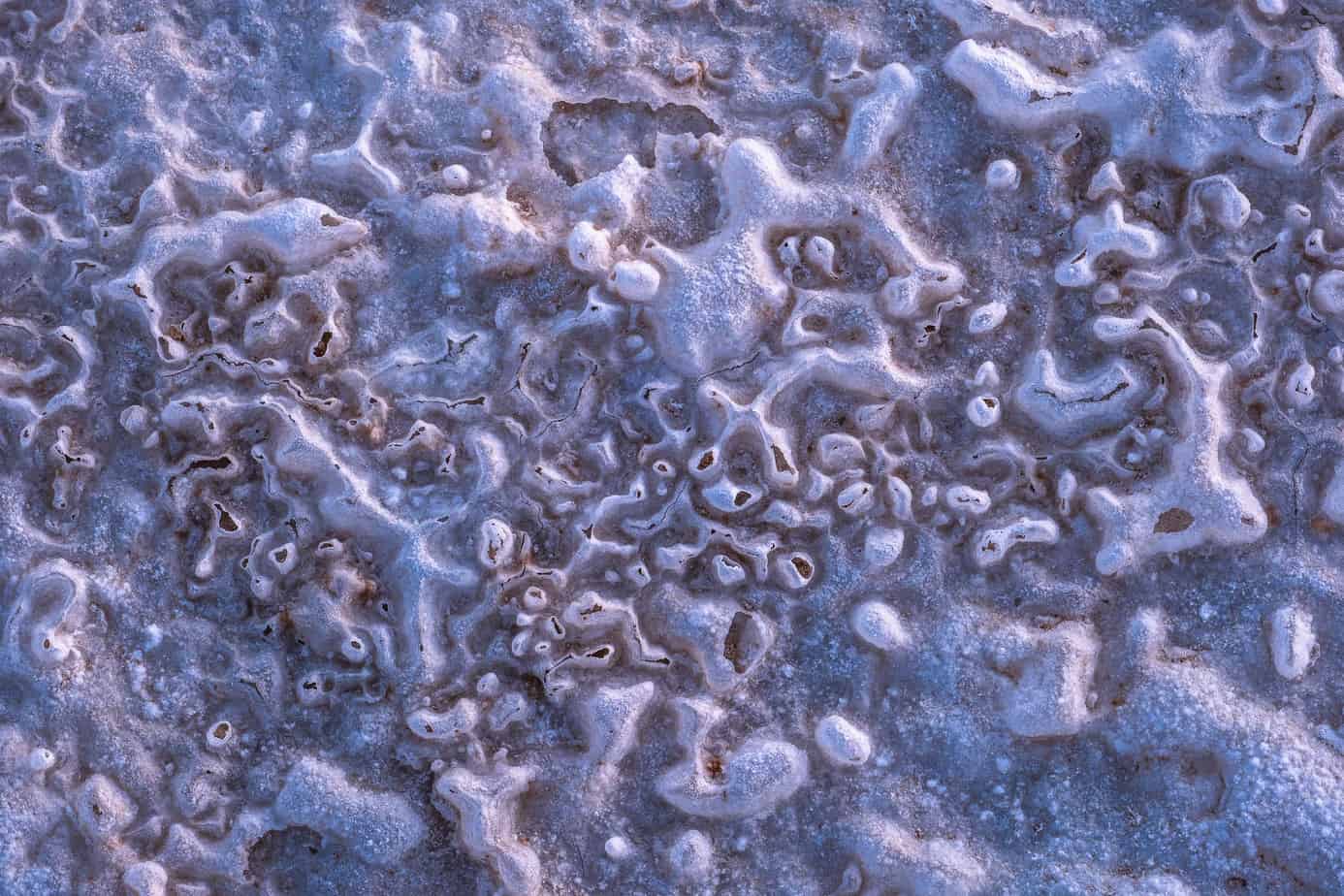
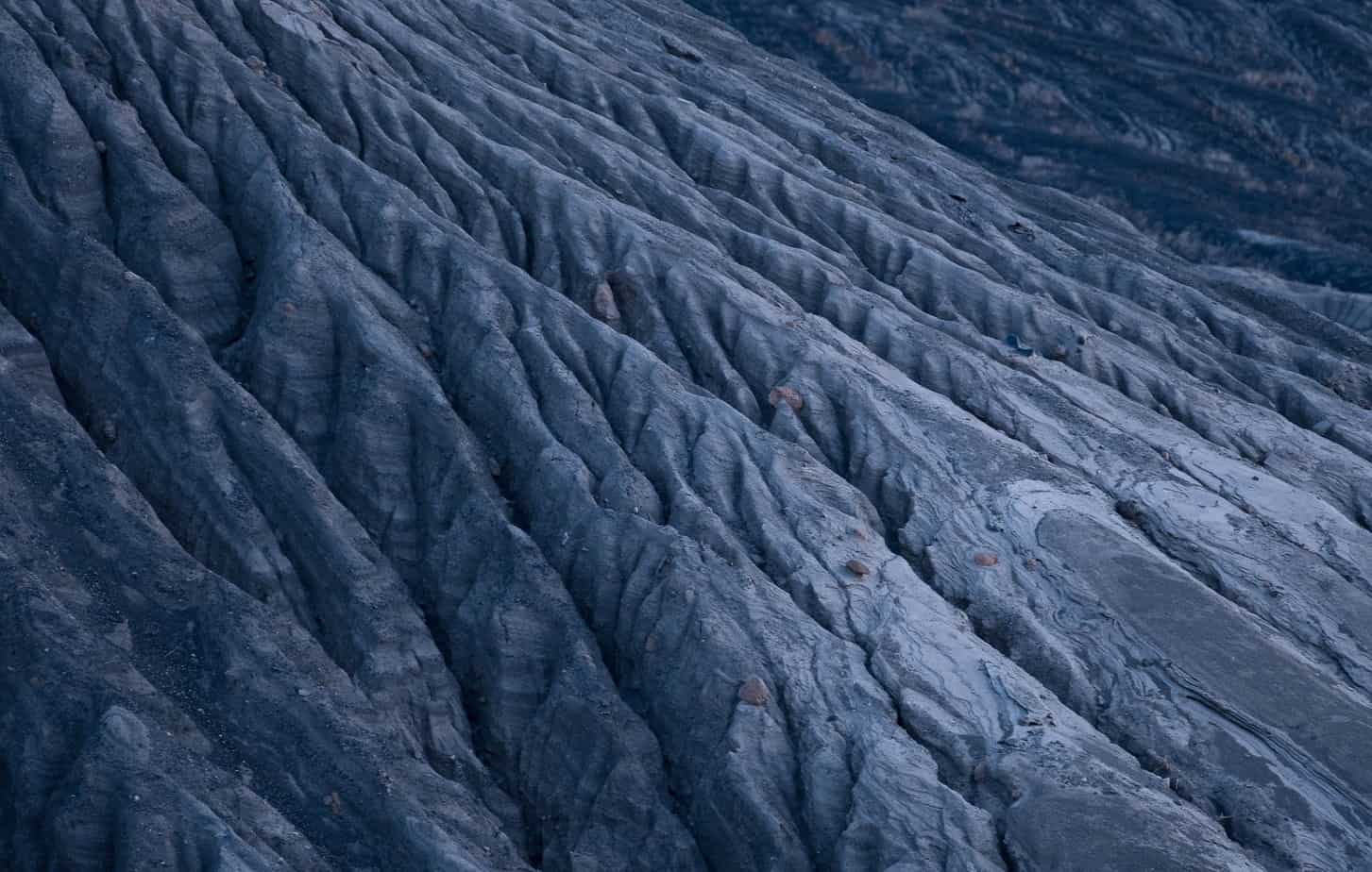
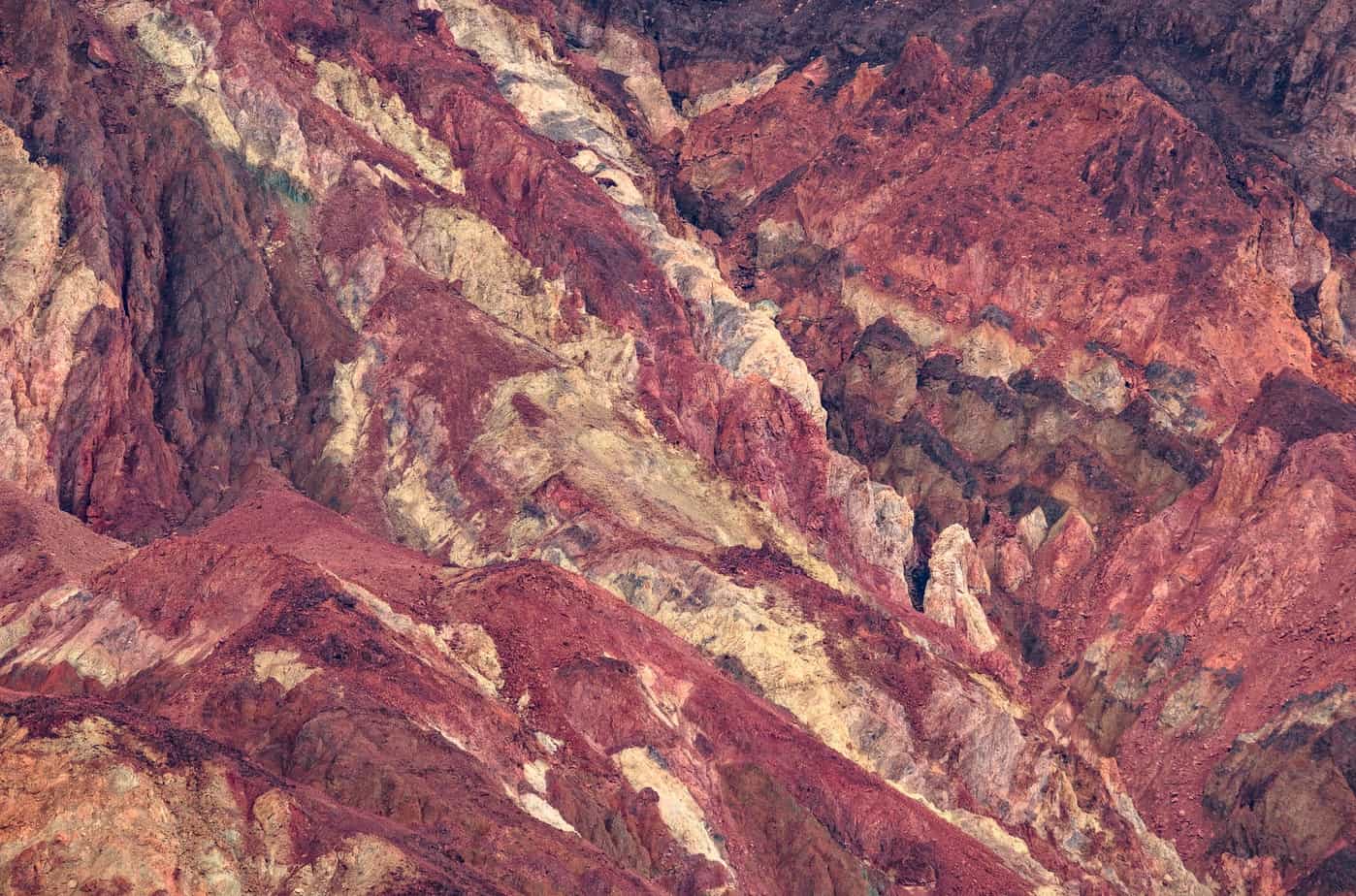
Our Philosophy
Our goal for this workshop is to create an inspiring, supportive environment that will help participants create a personally meaningful portfolio of creative photographs, with a focus on nature’s smaller scenes. As noted in the workshop description, personal expression, exploring creativity, and experimentation will be top learning priorities for this workshop. Thus, our time in the field will include a lot of exploring, experimentation, guided learning, and time on your own. This workshop will be an intensive, rigorous learning experience. Our time in the field and in the classroom will help you take your photography to the next level – whatever that means for you.
Our passion is seeing you grow in your photographic journey during our time together. We put your interests ahead of our own. Early on in the workshop, we will not photograph at all. Our focus is your learning experience, and we will not run off to chase the light and leave you behind. As the workshop progresses, we will take a few photos in a limited manner. This is so you can see how we approach a scene, demonstrate techniques, and create comradery with the group. Our focus will always remain on YOU. Regardless of where you are in your photography journey, we will provide individualized instruction based on your needs.
Above all, we want this to be a fun experience for you. With our small group size, we get to know our clients very well, and we feel like they are part of our extended family. We do this for the love of photography, and there is nothing that gives us greater joy than seeing our clients grow and find their artistic vision.
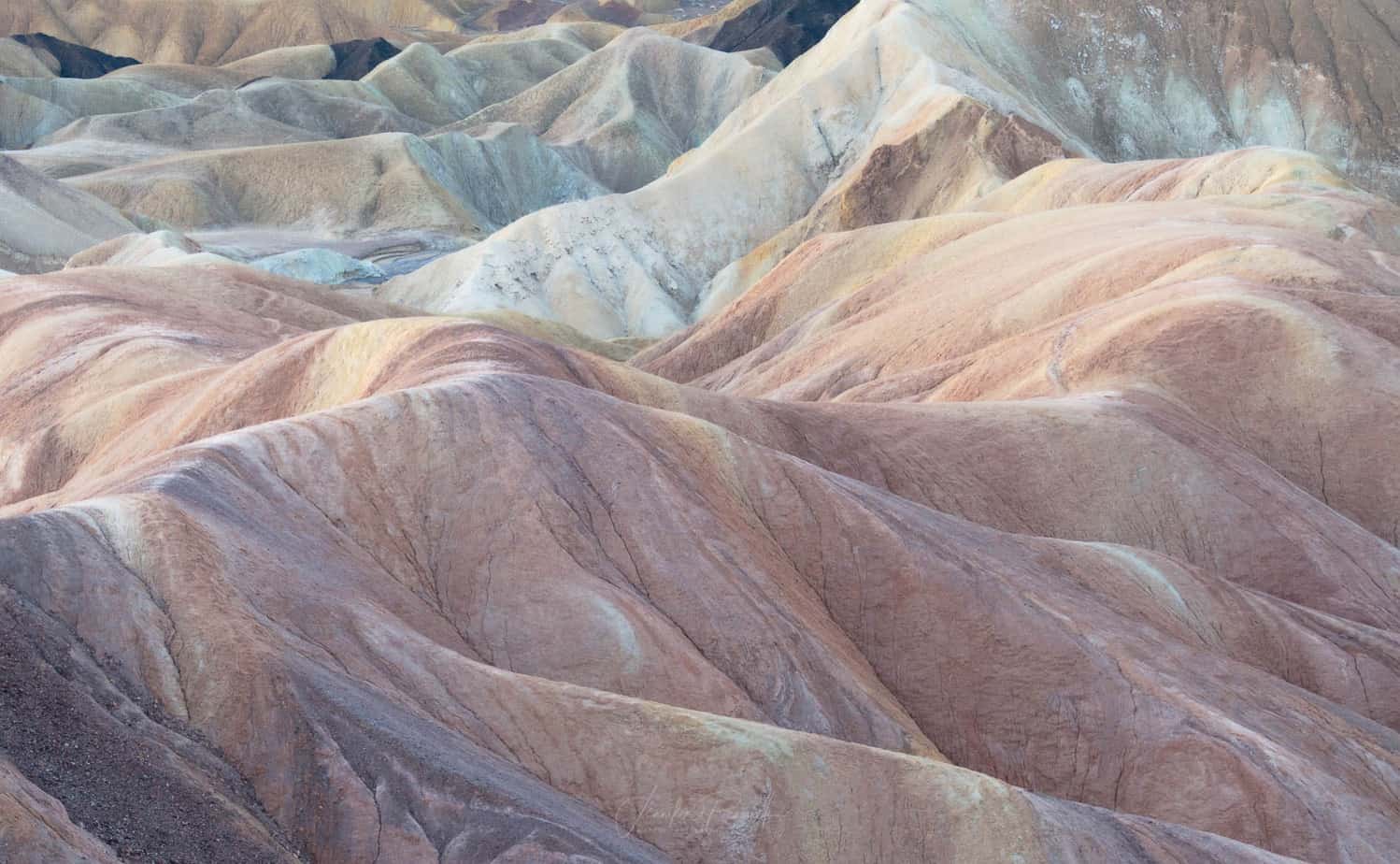
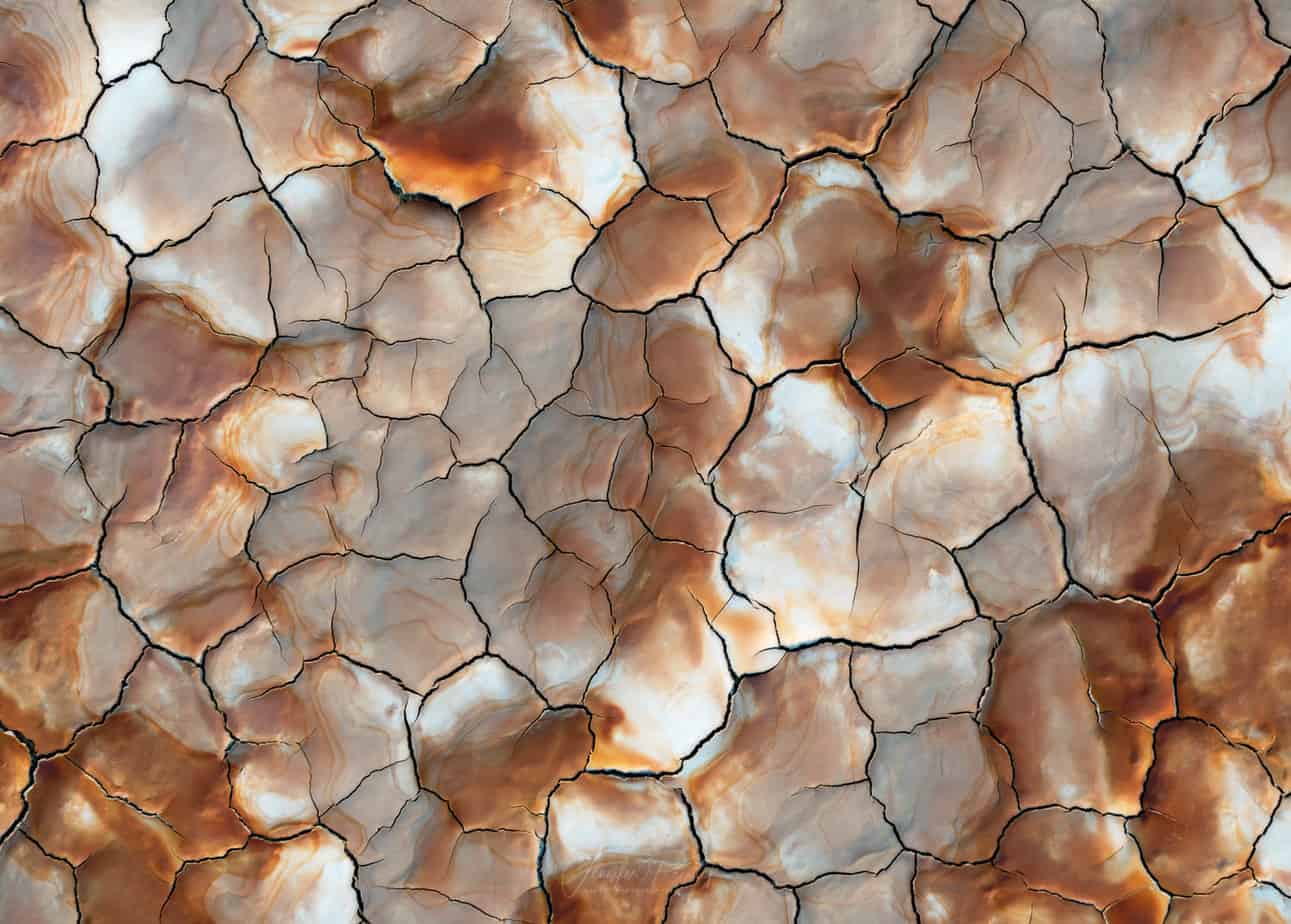
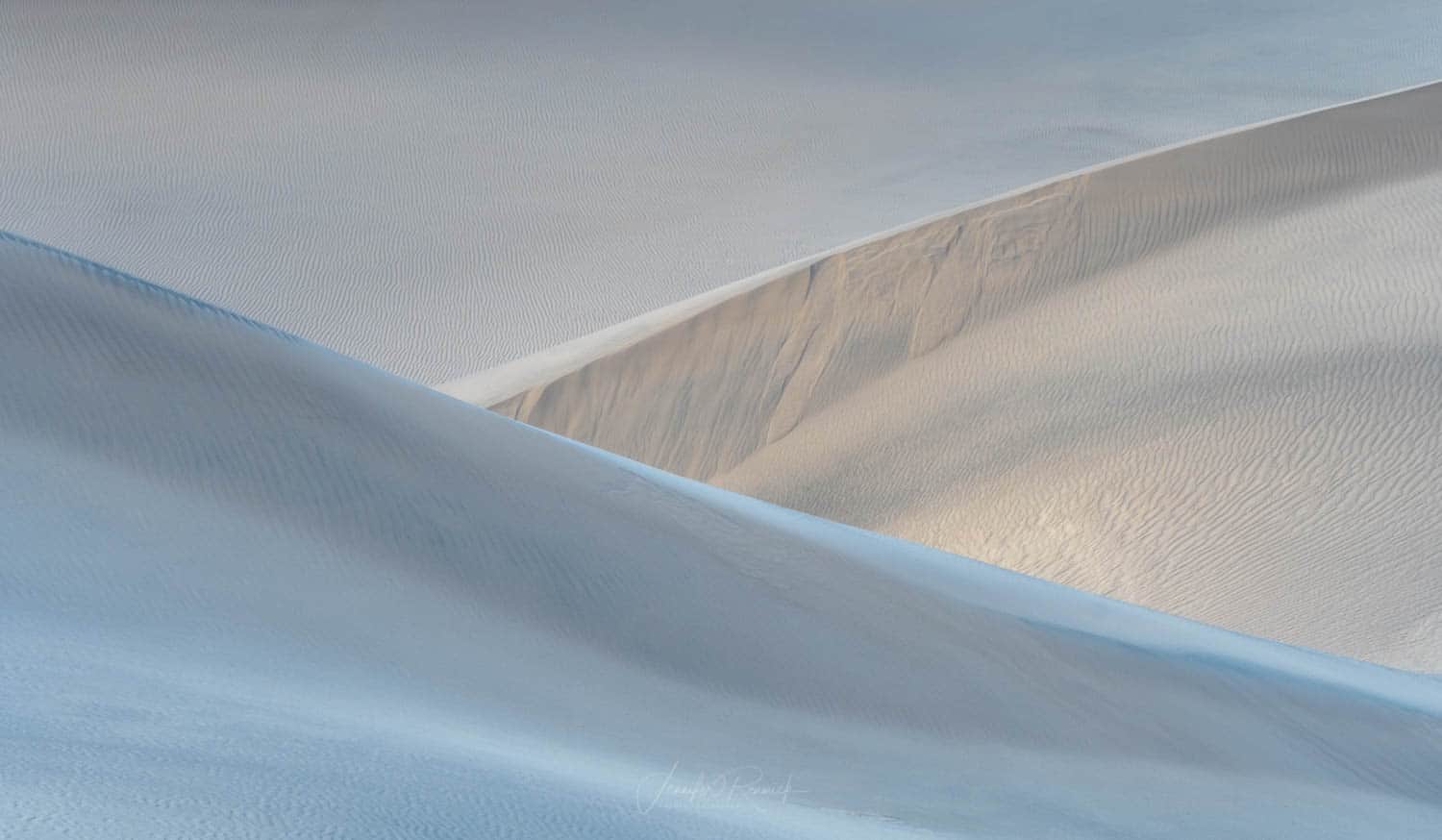
Photography Prerequisites
This workshop is open to anyone with an interest in photographing nature’s small scenes. Although we can help you with improving your technical skills, the more creative aspects of photography will be the focus of this workshop. Thus, you will get the most from this workshop if you are comfortable with the technical basics of nature photography (how to operate your camera and use your lenses, exposure, focusing, and basic post-processing skills). Additionally, we will be photographing around sunrise and sunset but will not be photographing the sunrise or sunset over a grand landscape. You will get the most out of this workshop if you are excited about focusing on smaller scenes during our full time together.
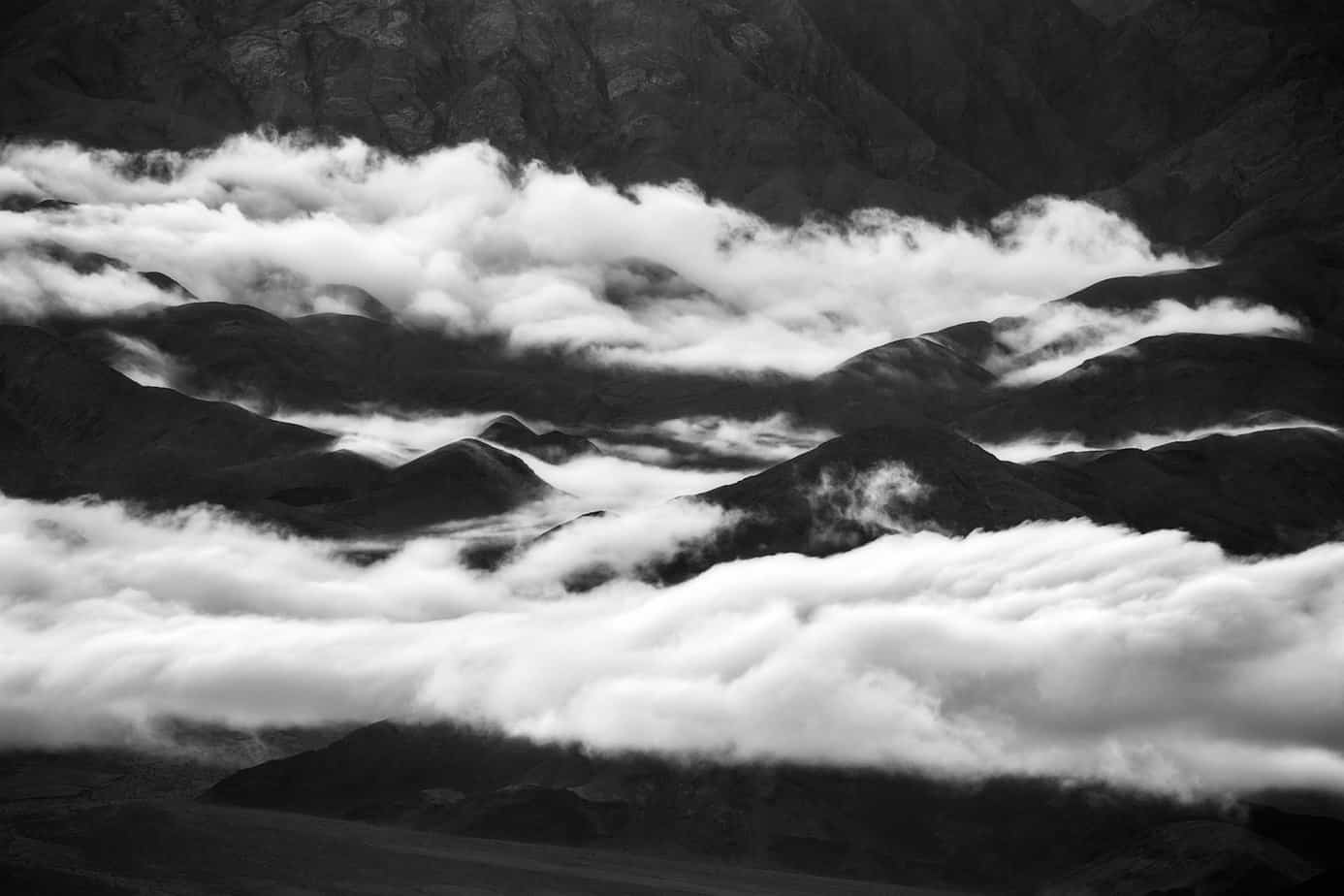
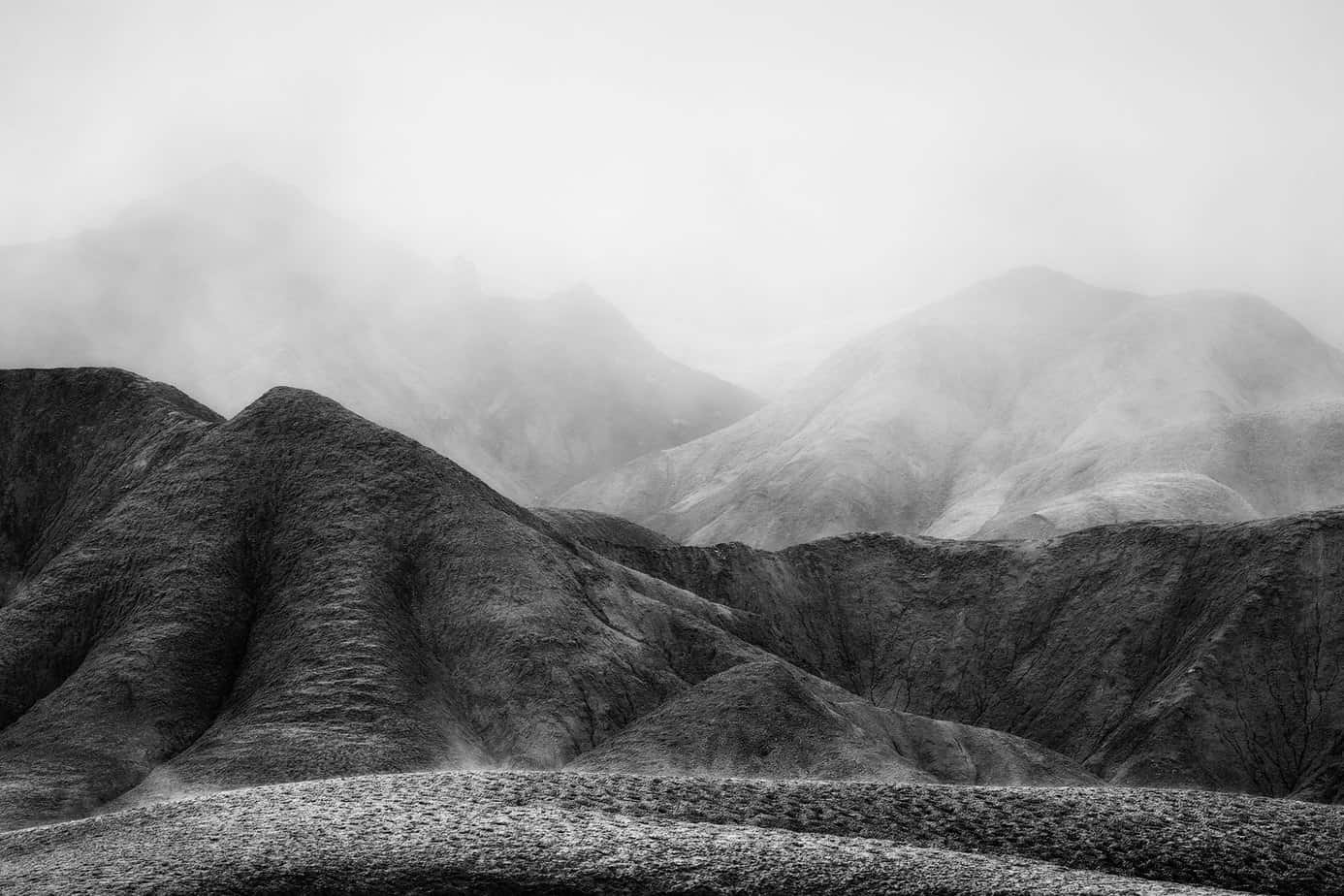
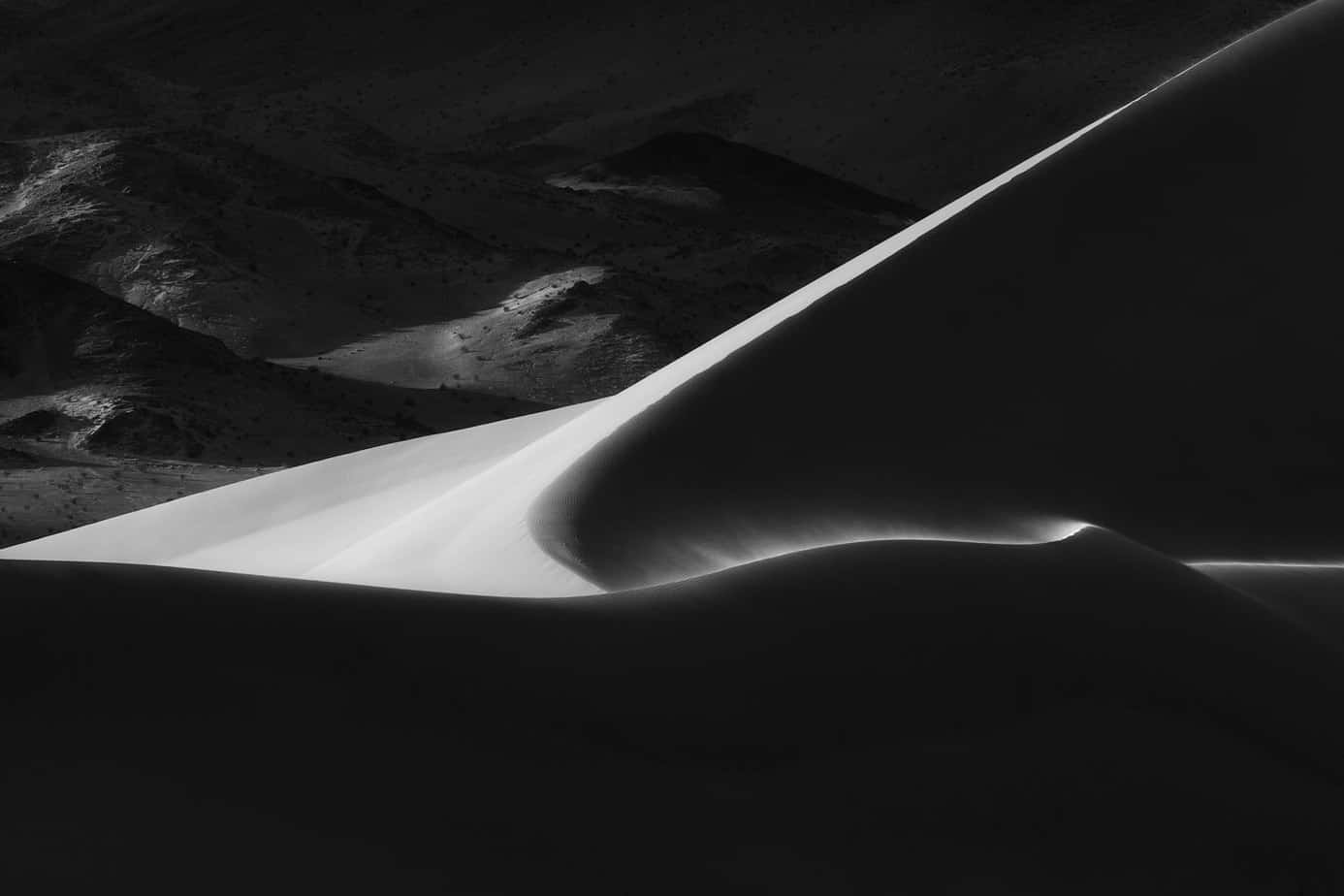
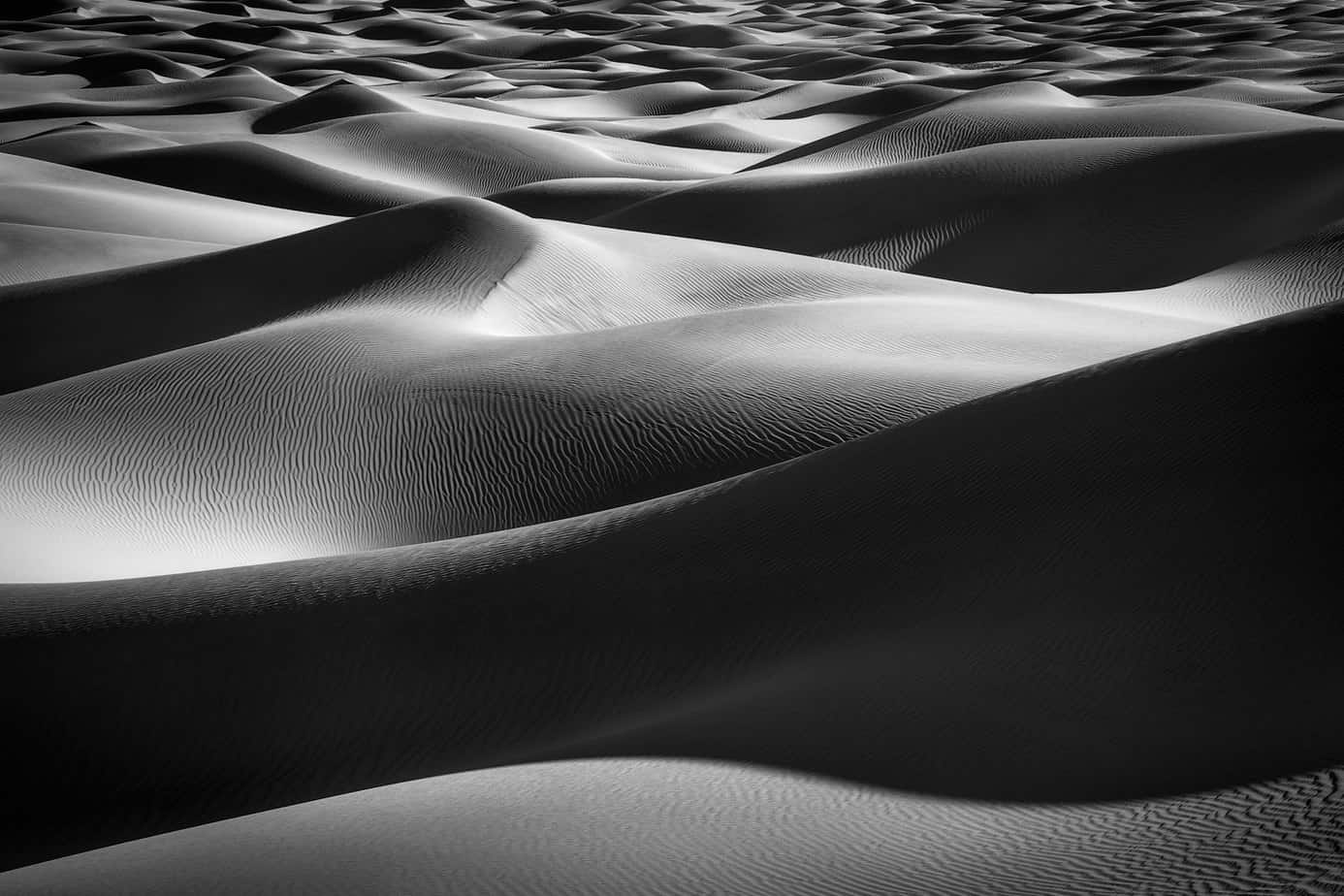
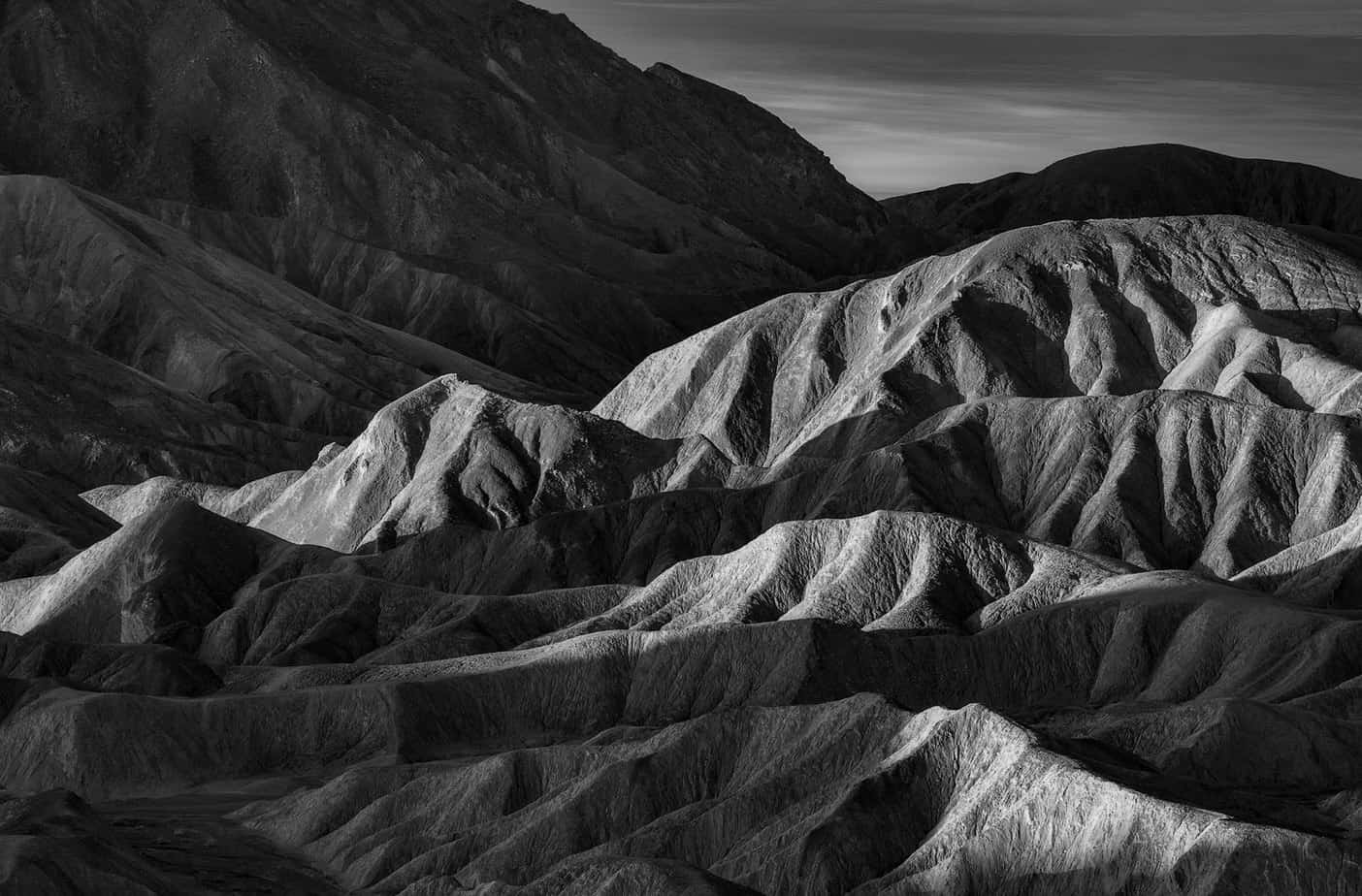
Fitness Level
This workshop will include a mix of easy roadside photography plus hiking to access photography locations. Most hiking will not include much elevation change but will include walking over uneven terrain (like in canyons without established trails) and across sand dunes, which can be physical exhausting despite the minimal elevation change. We may also make one or two short but steep hikes to access viewpoints. Good balance and the ability to carry your camera gear for hours at a time will also be necessary. The photography locations for this workshop are between -252 feet and 7,000 feet in elevation. Hiking will typically be limited to 1 to 2 miles at a time.
Investment
$1995 - (Initial Payment of $695)
What is Included
- Three attentive instructors to ensure ample time for individualized attention
- Small group size of ten
- Water and snacks when in the field
- Extended field sessions each day of the workshop (since the subjects we will be photographing can work in all kinds of light, most days will include extended morning and afternoon photography sessions with a break in between)
- Mentoring on creativity, personal expression, composition, light, and technical decisions in the field
- Guided exercises to expand your photography skills, creativity, and ability to see small scenes
- Feedback on your photographs, including time for formal image critique
- Processing instruction in Lightroom and Photoshop during scheduled sessions, with a focus on photo processing techniques for small scenes
What is Not Included
- Transportation - 2 people can ride in our vehicle, others will carpool together. Most locations will be accessed from paved roads or easy gravel roads. If multiple members of the group have 4x4 vehicles, we may be able to access some more remote locations but a 4x4 vehicle is not required for the workshop.
- Lodging – The workshop will be based out of Furnace Creek, which is the area of the park with the most visitor services. We have a block of rooms held for workshop participants at The Ranch at Furnace Creek. The Inn at Furnace Creek offers upscale lodging, as well. Death Valley National Park has three campgrounds in the Furnace Creek area (Furnace Creek, Texas Spring, and Sunset, the latter of which is best suited for RVs). Furnace Creek Campground accepts reservations, whereas Texas Spring and Sunset do not accept reservations.
- Meals – Workshop participants will need to pay for their own meals during our time together. We will have two group dinners, one at the beginning and one at the end of the workshop (other dinners will be on your own). Depending on our schedule each day, we will also eat breakfast or lunch together as a group. The stores in Furnace Creek and Stovepipe Wells both offer snacks and grab-and-go foods like sandwiches. You should bring any other food that you want for the trip with you.
More Information
Sign up for our newsletter to get more information on this workshop
- Locations we will photograph
- Itinerary
- Lodging
- What to bring
- and more...
How To Get There
Furnace Creek is about 2.5 hours from McCarran International Airport in Las Vegas, Nevada. Death Valley National Park’s website offers driving options to get to the park (https://www.nps.gov/deva/planyourvisit/directions.htm). If you want to extend your trip, we can make recommendations for areas to visit for photography in California’s Eastern Sierra region, around Las Vegas, and further into Utah and California.
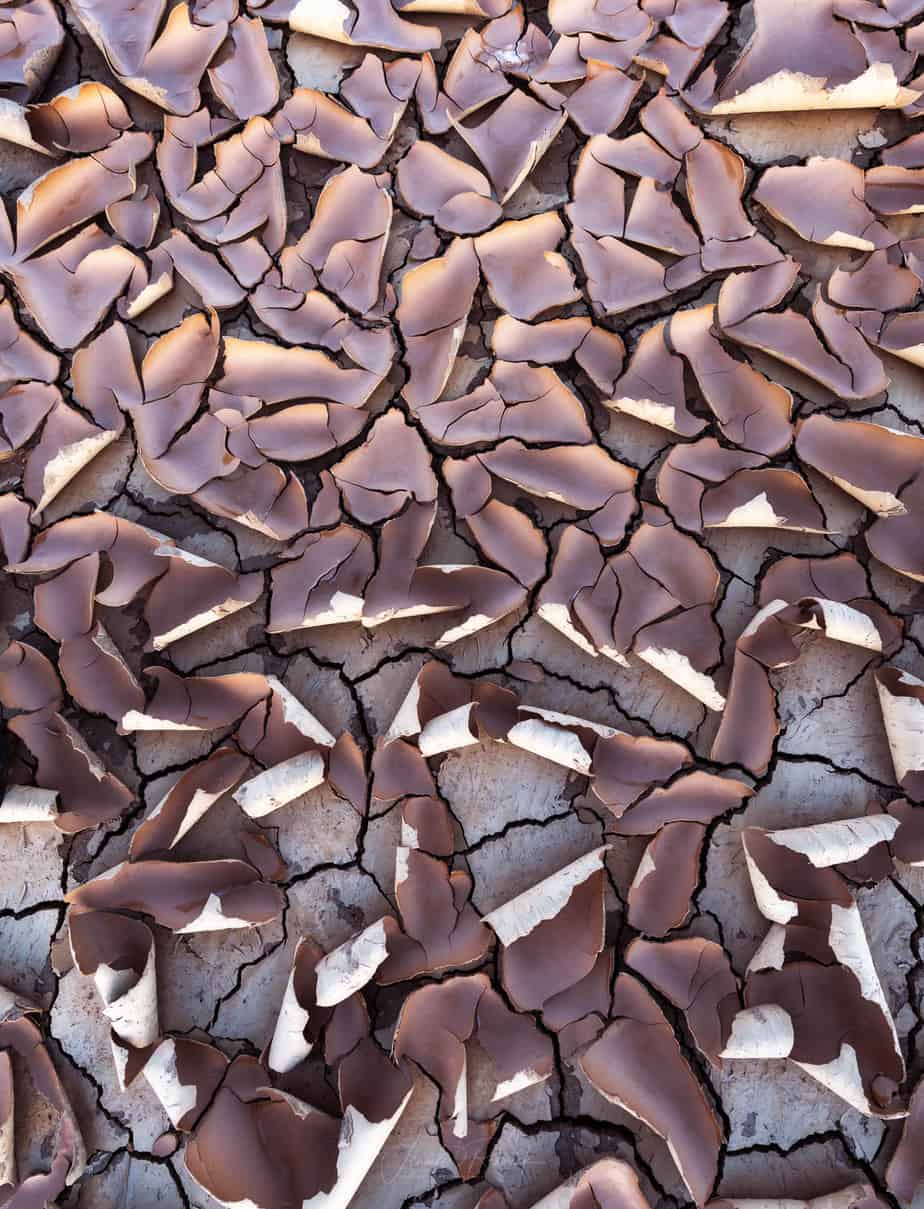
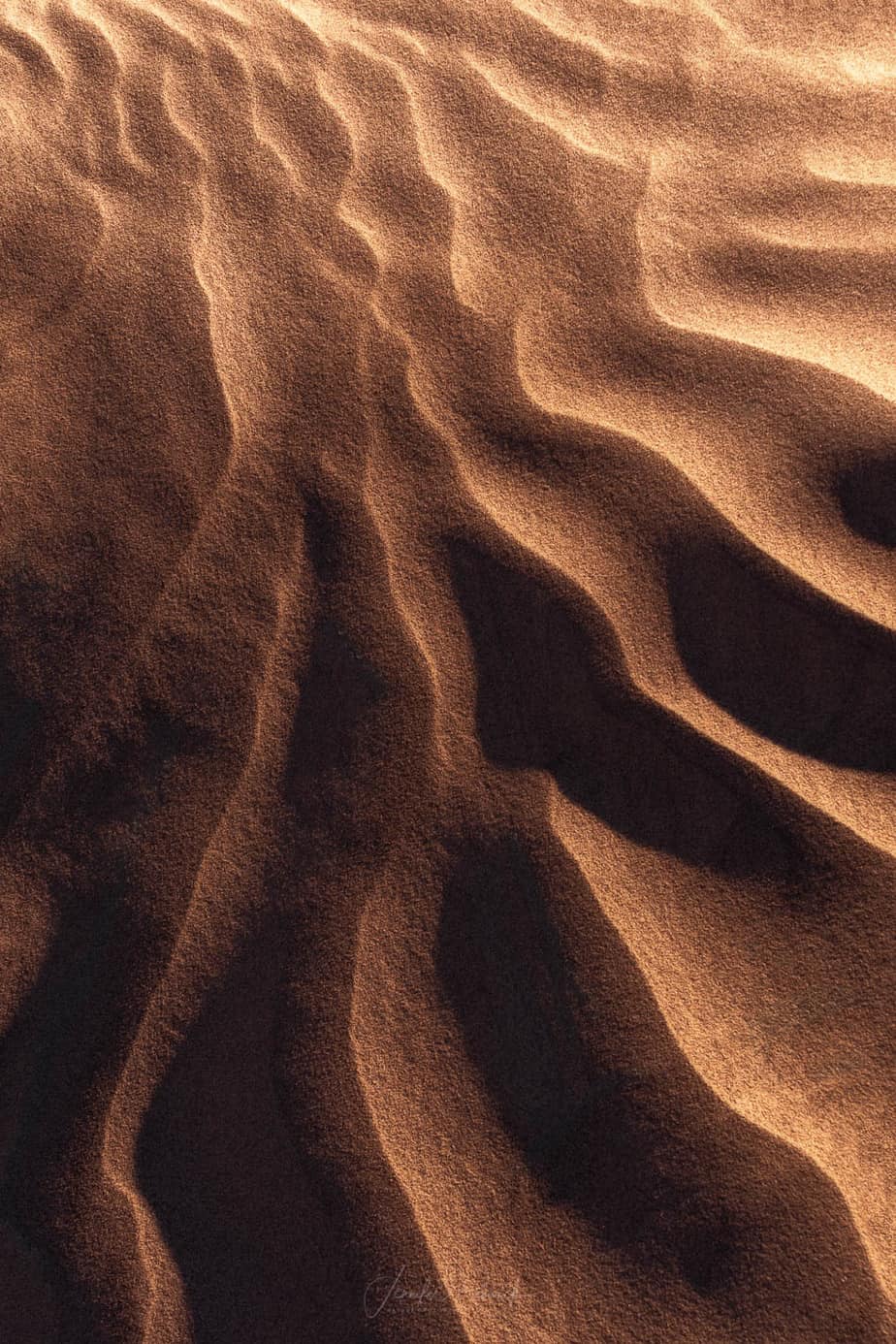

All locations are selected based upon the best time of year to visit the area, whether that is to see the best wildflowers, fall colors, or dramatic weather. We have done the research and planning to give you the best possibility of walking away with an incredible photograph.
During our drives we will discuss weather, how to find dramatic light, planning, etc. This will be more than a photo tour, it will be a learning experience. Out in the field we will instruct you on the proper techniques to create sharp photos, balancing exposure, composition, focus stacking, how to incorporate movement, long exposures and more.
The workshops are limited to 6 participants or less to ensure you get the attention you deserve.
We will provide you with an itinerary, but know that landscape and night photography is all about flexibility, especially being flexible to changing weather conditions. You will learn how to read the weather and select the perfect time and location based upon this.
What about night photography? Most workshops will include at least one night of night photography unless noted otherwise. Again, this will be dependent on the weather, this is the advantage of doing both. If we have clear skies we can change our plans to shoot at night when clear skies are preferred.
The 5 day workshops will be focused on one area rather than quickly moving from one location to the next. We will visit many different locations in this focused area. To understand the weather patterns in an area, you must spend some time there.
Is transportation provided?
Yes! Many of the locations selected require a high clearance 4×4 to reach. All of the participants will ride in our 4×4 vehicles. You will all get to share the experience together without worrying about the logistics. You only need to get to the hotel via taxi, shuttle, or rental car, the rest is taken care of. You are welcome to drive your own vehicle if you prefer.
Is lodging provided?
Unless noted otherwise, no. We typically hold a block of rooms at a discounted rate for the group.
Are spouses/partners welcome?
Yes, but seating is limited. If they come out on location you will have to provide your own transportation, or pay the full price for another seat.
Are these workshops run on the up and up?
We work hard to ensure the workshops are run within all the requirements of the law. We are an authorized permittee with the National Park Service, Forest Service, BLM, etc. We also strive to to keep you safe in such remote locations, David is a certified Wilderness First Responder so you can feel safe no matter where we are.
Will I have cell signal during the Workshop?
Cell signal is extremely intermittent in most of the locations, you should not expect to be connected all the time, at certain locations you may be offline for long periods, enjoy the silence.
Will the instructors take photos during the Workshop?
Early on in the workshop we will not photograph at all, our focus is on you and your learning, we will not run off to make our own photographs. As the workshop progresses, we will take a few photos in a limited manner, this is so you can see how we approach a scene, create comradery with the group, and to show you the same type of images you will be taking for our post-processing session. Our focus will always remain with you.
Will weather cancel the Workshop?
Dramatic weather is when the best photographs are created! Unless there are very dangerous conditions the weather will not stop us, in fact it will encourage us! No rain checks will be given for any weather related circumstances.
What is the cancellation policy?
- If you cancel 90 days prior to the workshop we will refund your initial payment minus a $100 fee.
- 90 days before the start of the workshop, we will refund your initial payment only if we can fill your spot.
- The full balance is due 60 days before the workshop. There will be no refunds on the full amount owed. We will attempt to fill your spot, if filled there will be a $100 administrative fee charged and the rest of your payment will be refunded.
There are NO EXCEPTIONS TO THIS POLICY, even for medical emergencies. All cancellation requests must be in writing and received either by US mail or E-mail. We encourage participants to purchase refundable airline tickets and trip cancellation insurance. We strongly recommend trip insurance to protect you in the event of an unexpected situation that prevents you from attending the workshop. We recommend Travelguard or World Nomads.
We reserve the right to cancel any workshop if the minimum student enrollment is not met. In the event we cancel a workshop, participants will be given the option to reschedule to a later date or receive a full refund. we are not, however, liable for expenses incurred such as airfare or accommodations, and for this reason we also recommend the purchase of trip insurance.
What to bring?
- Your DSLR, nothing specific is required, although we do have a list of recommended gear.
- Lenses – Extreme wide angle is recommended (16-35 range on full frame or 10-20 range on a cropped sensor), a mid range zoom, and a telephoto of at least 200mm. If the workshop includes night photography you will want to take a look at our list of recommended gear for night photography.
- Tripod – A sturdy tripod is necessary, David uses Feisol tripods, but also recommends Really Right Stuff, Induro, and Gitzo.
- Filters – A circular polarizer is the only requirement, but we recommend neutral density filters (10 or 6 stops).
- Misc. – Bring extra batteries and memory cards.
- Clothing – Temperatures before sunrise are the coldest of the day, bring layers of clothing to quickly change for the conditions. If the workshop involves night photography plan on bringing even more warm clothes.
- Food – Snacks will be provided out in the field, for other meals we will go to local restaurants together and enjoy the comradery of the group. If we have a long day in the field we will stop at a grocery store for everyone to pick up something.
We are proud members of the League of Landscape Photographers, which is a group of artists committed to behaving in an ethical manner wherever we are photographing, and encouraging others to behave as stewards of our environment. Our clients must abide by these ethics in our workshops.
Our Code of Ethics:
Environment
- I inform myself about all rules and regulations relating to photography when visiting a natural area or public attraction.
- I do not knowingly step onto private property without permission even if the property appears abandoned.
- I stay on designated paths and trails. If there is no trail, I follow proper etiquette by educating myself on the principles of Leave No Trace.
- I aim for authenticity by photographing plants and animals in their natural habitat engaging in their normal behaviors.
- I inform myself about the plants and animals I intend to photograph. I avoid photographing them if they exhibit distress signals, and during times of physical strain or breeding seasons. If my presence is causing stress, I leave the area immediately.
- I help to protect the environment by picking up trash I find when in the field.
- I work to improve my photographic skills by using all my tools when making a composition. I do not move objects, pull plants or otherwise ‘tidy’ a scene. I move my position or wait patiently rather than attempt to influence an animal’s behavior or posture.
- I refrain from baiting (including sound baiting), or placing attractants to entice wildlife or influence their behavior. Also, I remove all artificial attractants I find in wild places that were placed there by others.
- I treat wild animals living in an urban environment, such as songbirds, with the same respect that I accord to those living in the wild. I consider their safety and well being before putting out seed. If I do, I research the proper natural organic food and follow proper procedures to ensure the cleanliness of the feeder to minimize the risk of disease. I locate the feeder to avoid cover for predators as well as potential in-flight collisions with reflective house windows.
- I keep rare species safe and intact by not broadcasting the location of a fragile area, plant or animal. I remove GPS data from my images before sharing them with others.
Social
- I treat all people with respect.
- I am patient and courteous with non-photographers visiting a scene. I am creative and can adjust my expectations of the images I planned to make. I am open to new ideas as they present themselves to me.
- I am aware of my position and how it may interfere with the ability of the photographers and non-photographers around me to enjoy a scene.
- If someone wanders into my scene, I am courteous and will wait for them to move. I will consider adjusting my own position, or kindly asking them to move when they are ready.
- If I see someone violating the Code of Ethics, I will consider talking with them about the possible effects of their behavior. I will only do so if I do not perceive any threat to my personal safety. As an alternative, and if their behavior is particularly egregious, I will consider documenting the situation and reporting them to the appropriate authorities.
Self
- I adopt this Code of Ethics and strive to adhere to these important principles.
- I am an ambassador of ethical conduct in the industry through my own behavior and by sharing these principles with other photographers and the public.
- I know and respect my physical limitations and keep myself out of harm’s way by avoiding situations where my health and safety or the health and safety of others could be put at risk by my actions.
- I educate myself about the weather, terrain, culture and potential hazards before visiting a new area.
- If I am leading a photo group, whether commercially or not, I ensure that the group members are informed about the Code of Ethics, potential hazards and other safety concerns, and that the group size is appropriate given the sensitivity of the place we are visiting.
- I am always forthcoming about my post-processing and refrain from representing my photographs as something they are not.

